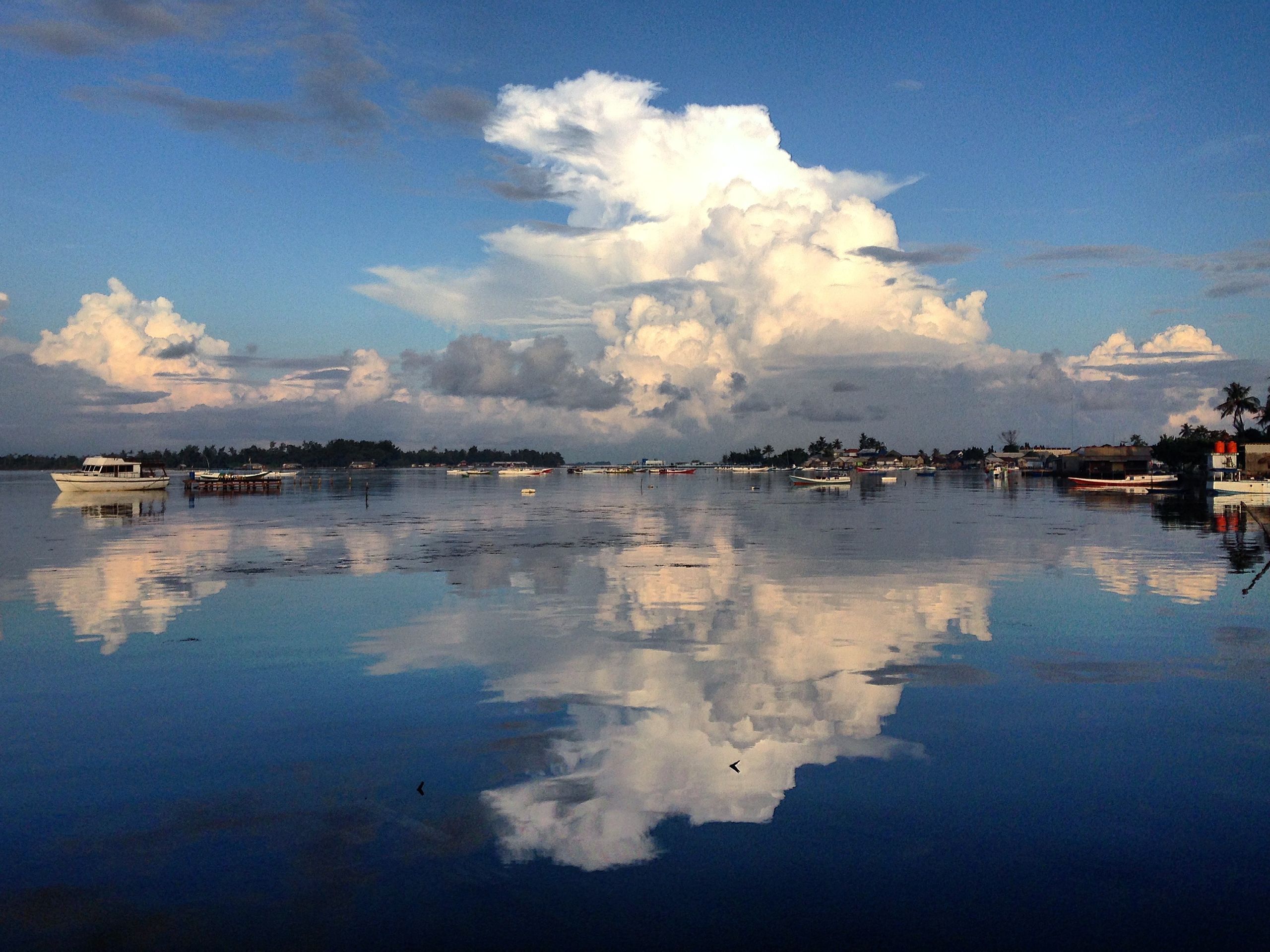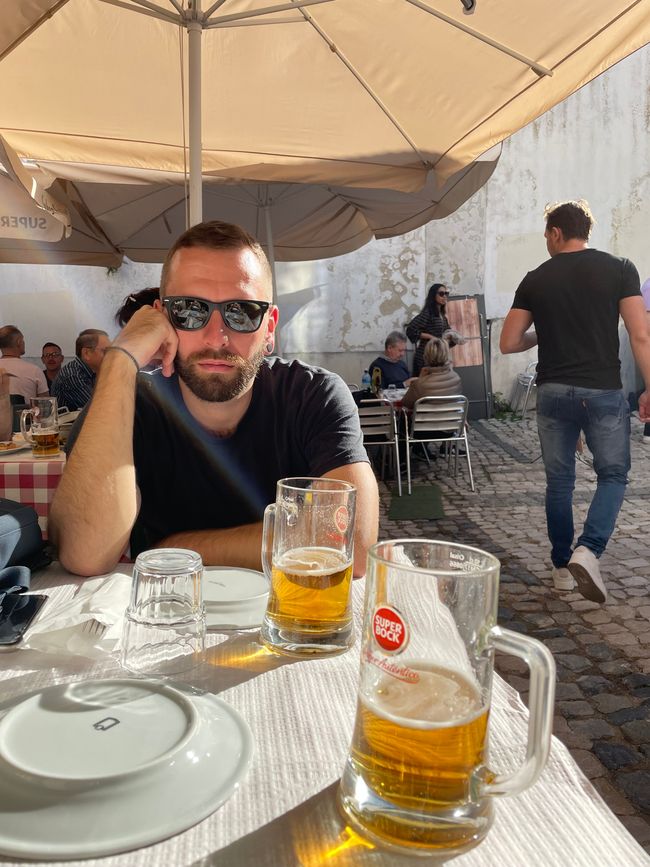
ausderfernebetrachtet
vakantio.de/geschichtenvonunterwegs
San Pedro de Atacama
Oñemoherakuãva: 06.08.2024
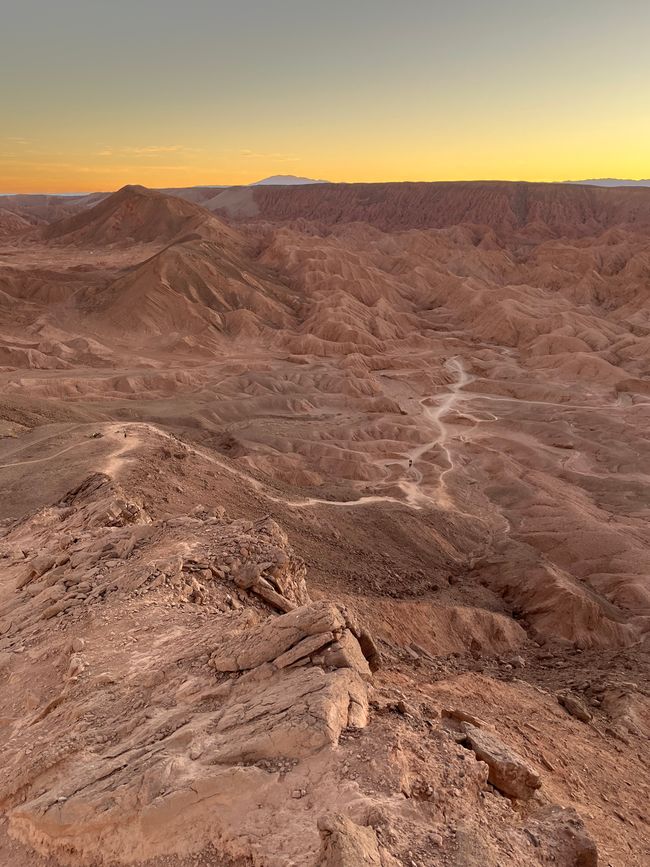
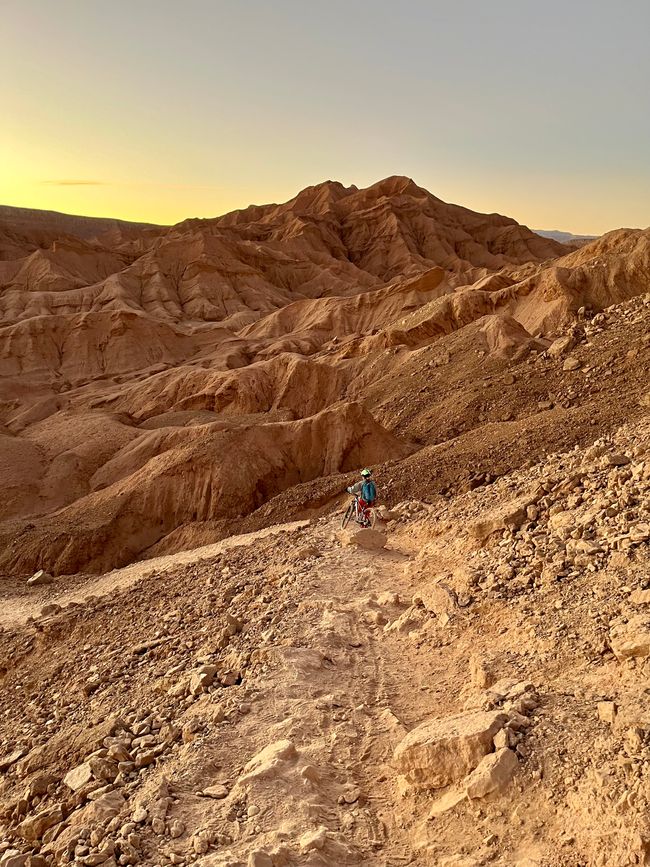
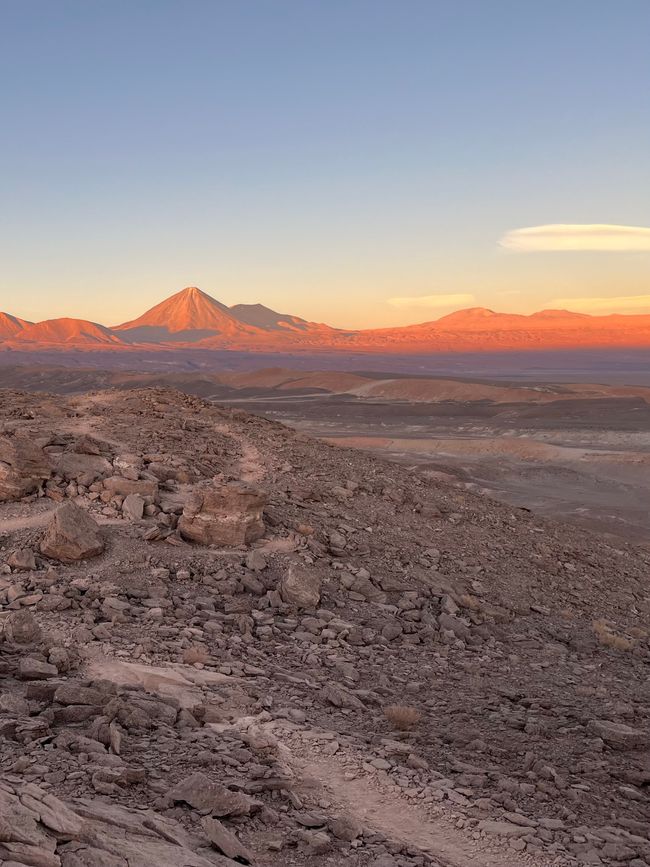
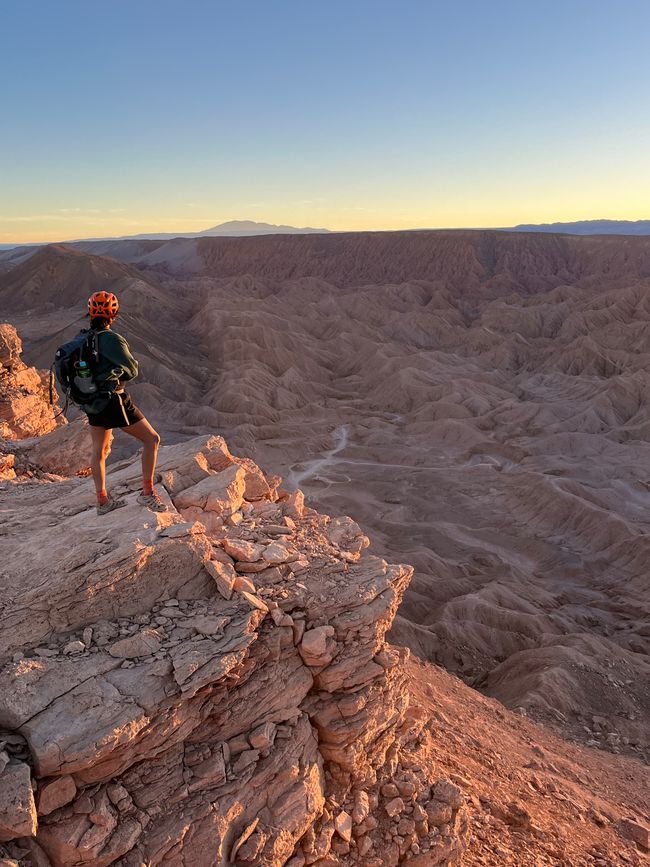
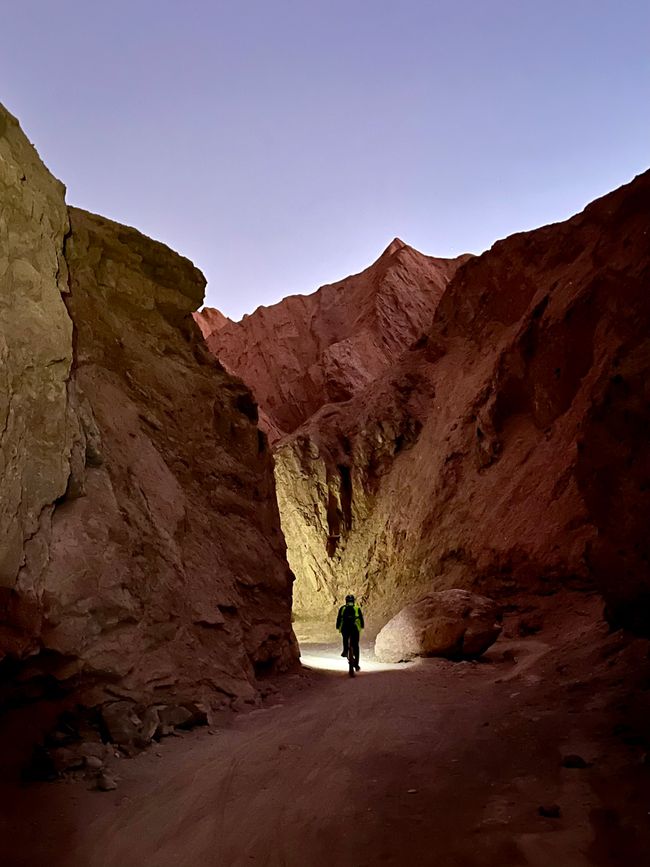
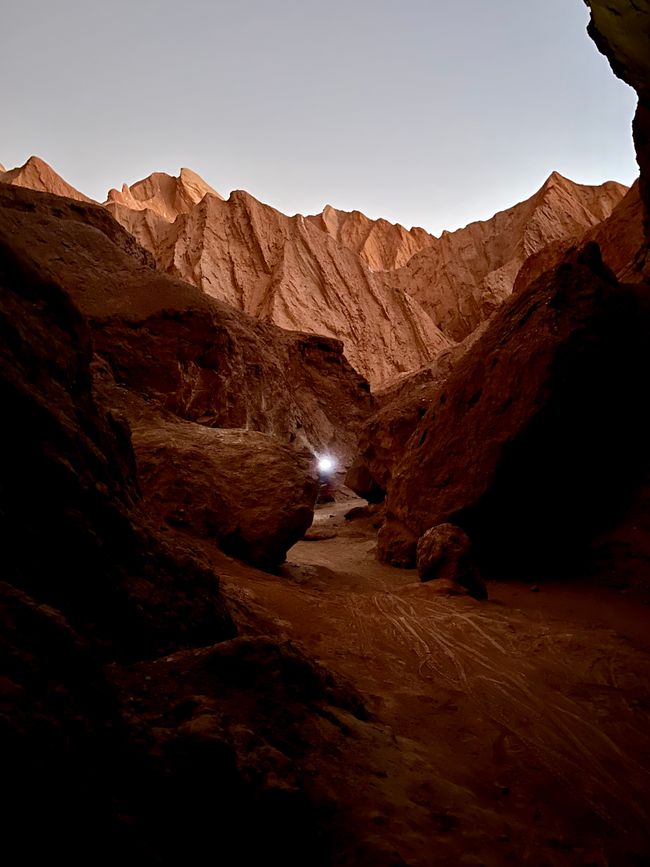
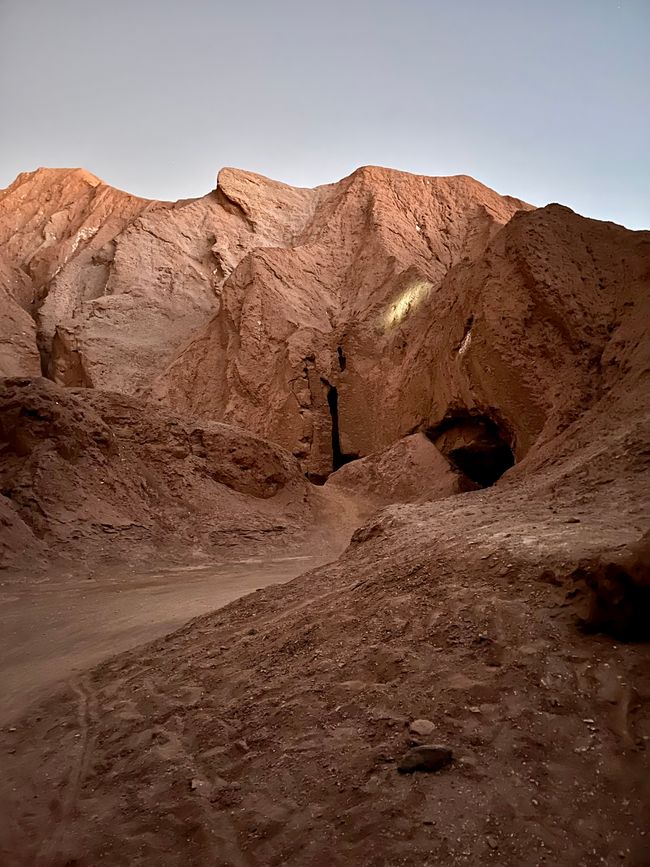
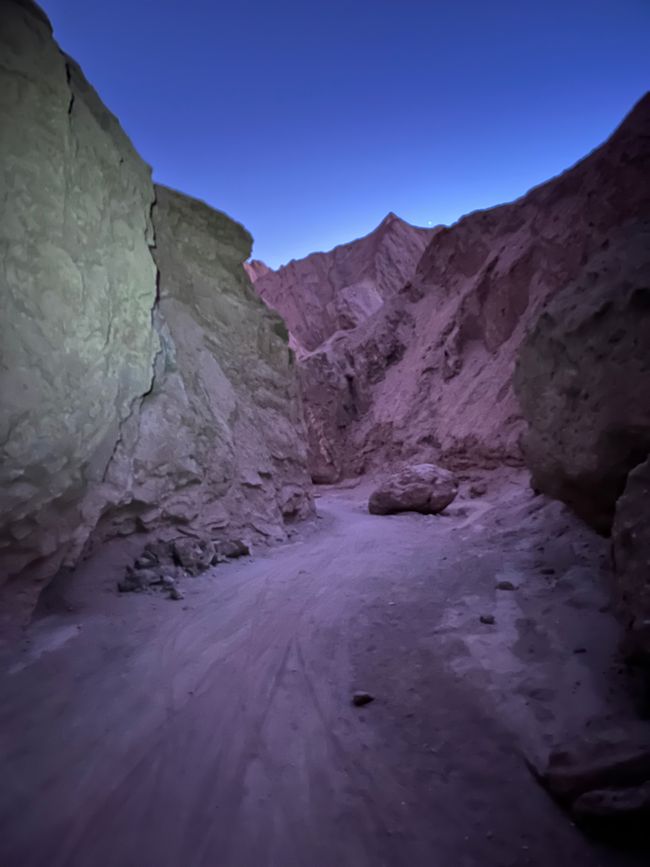
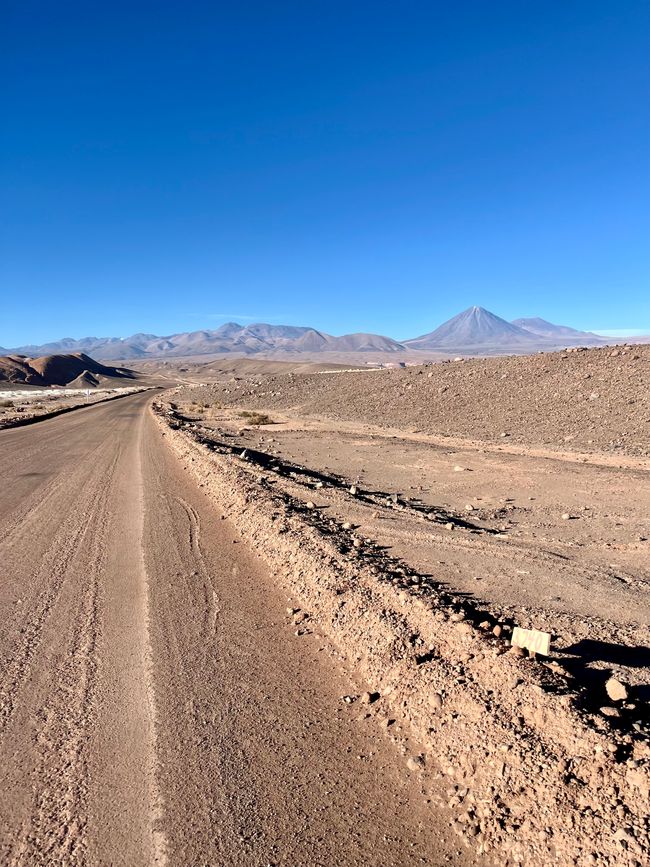
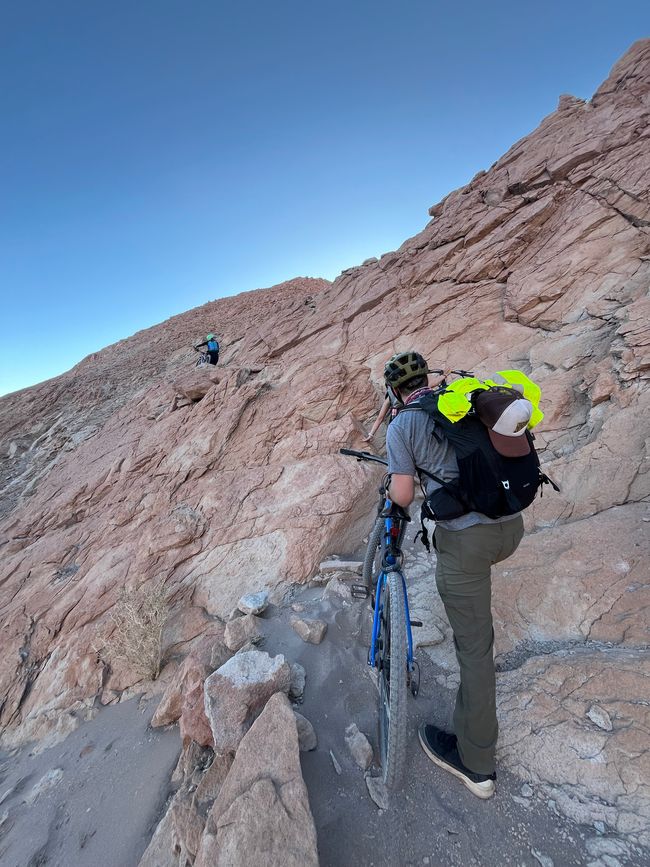
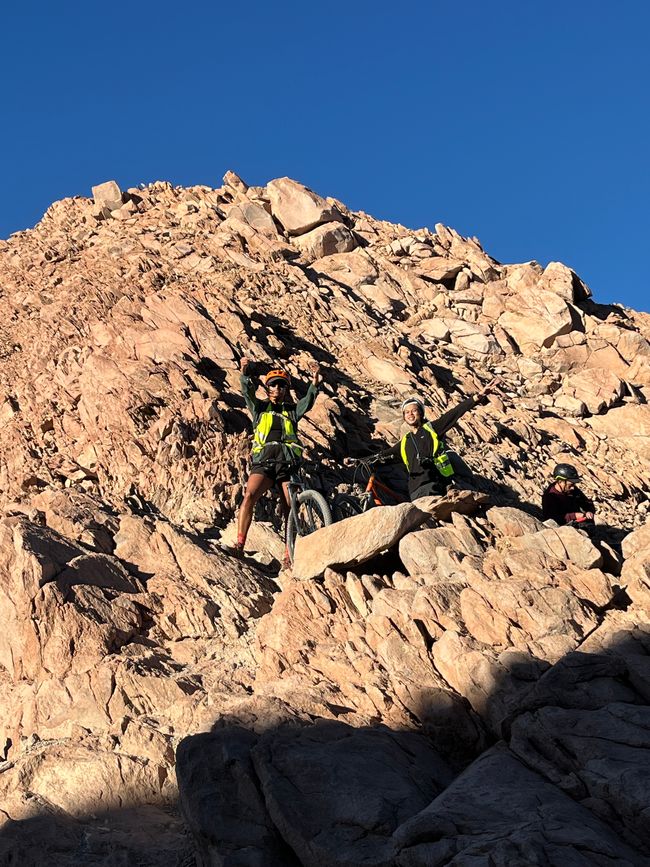
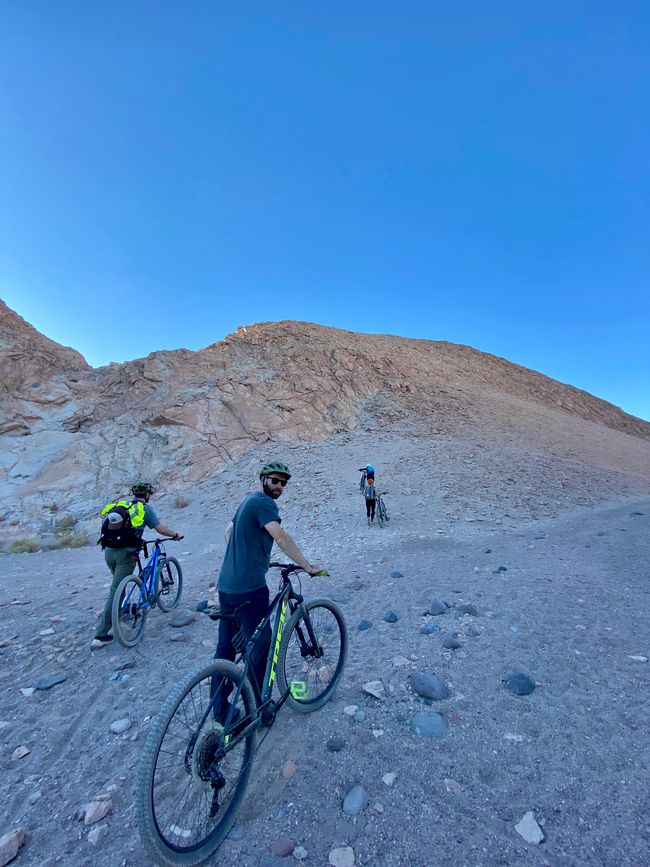
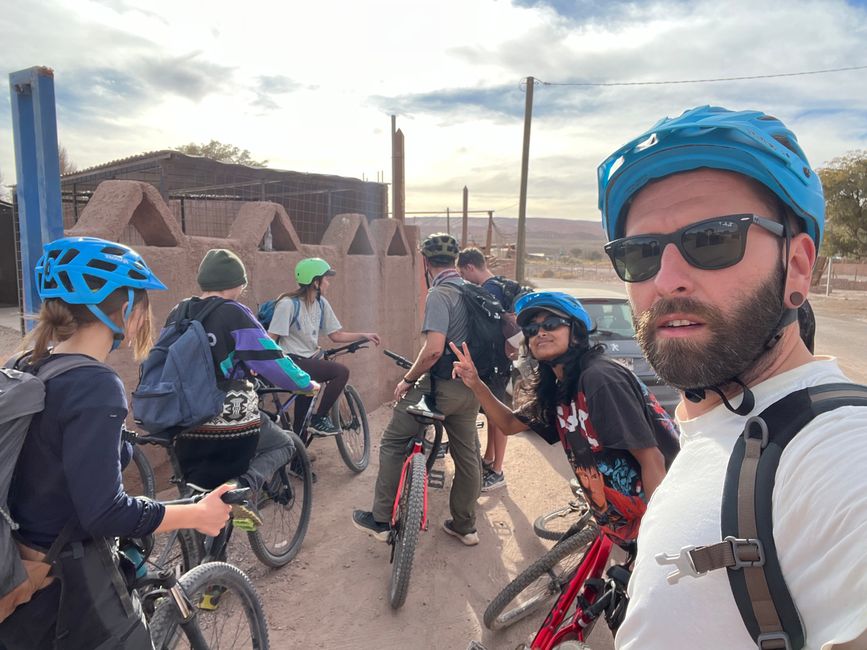
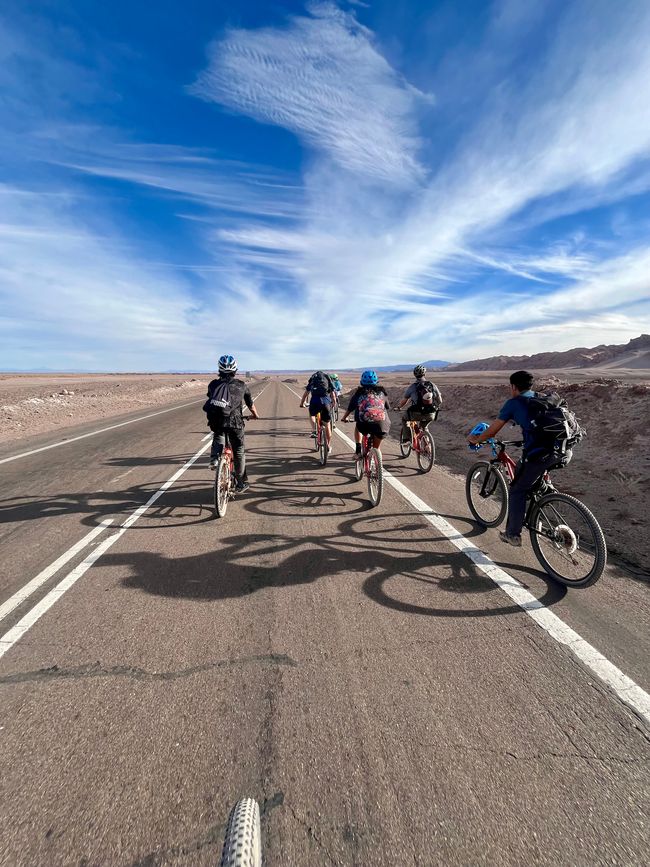
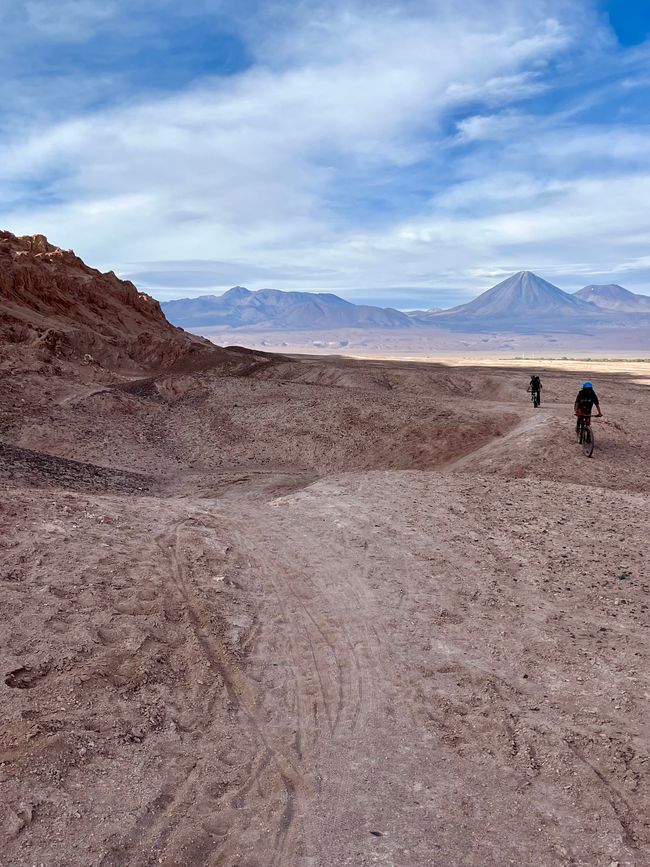
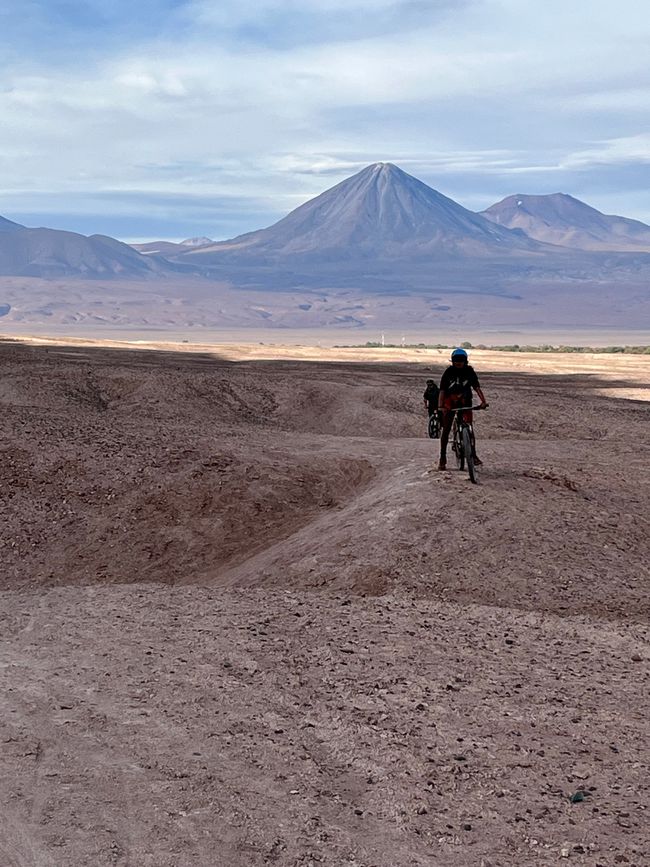
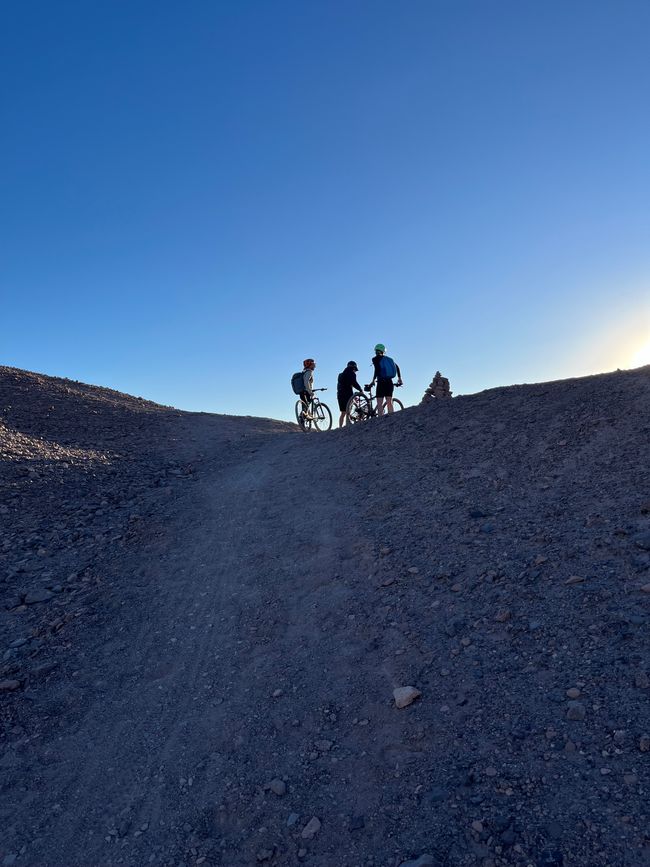
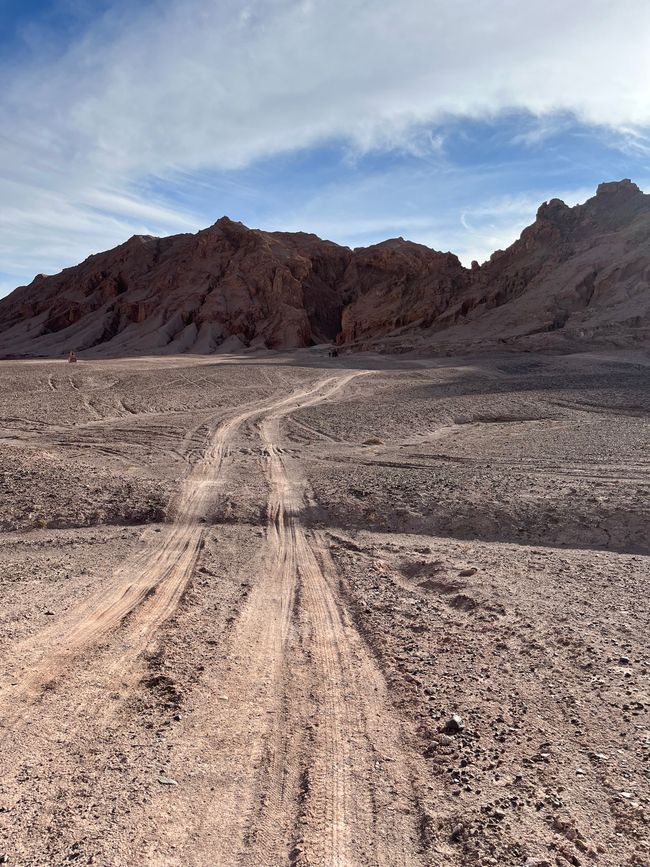
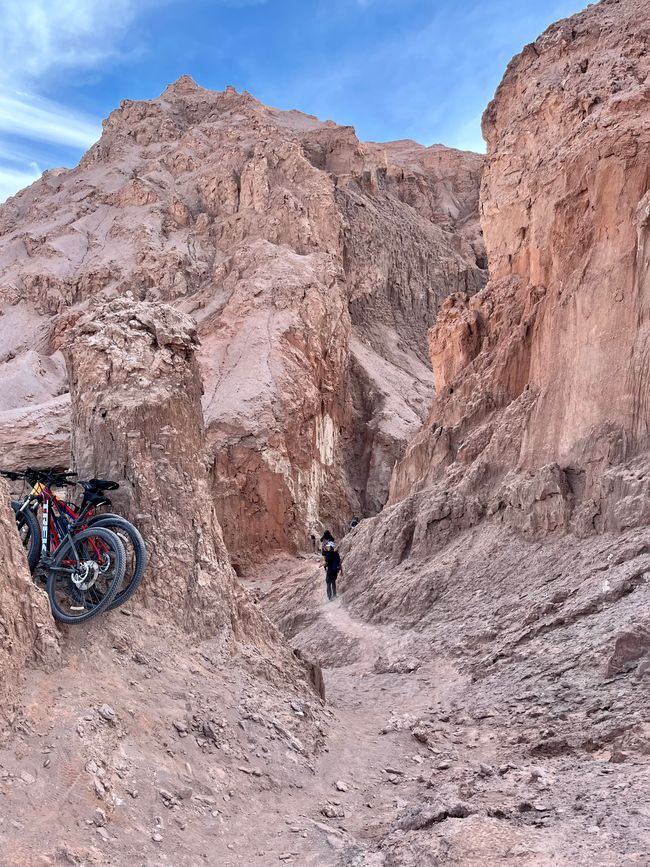
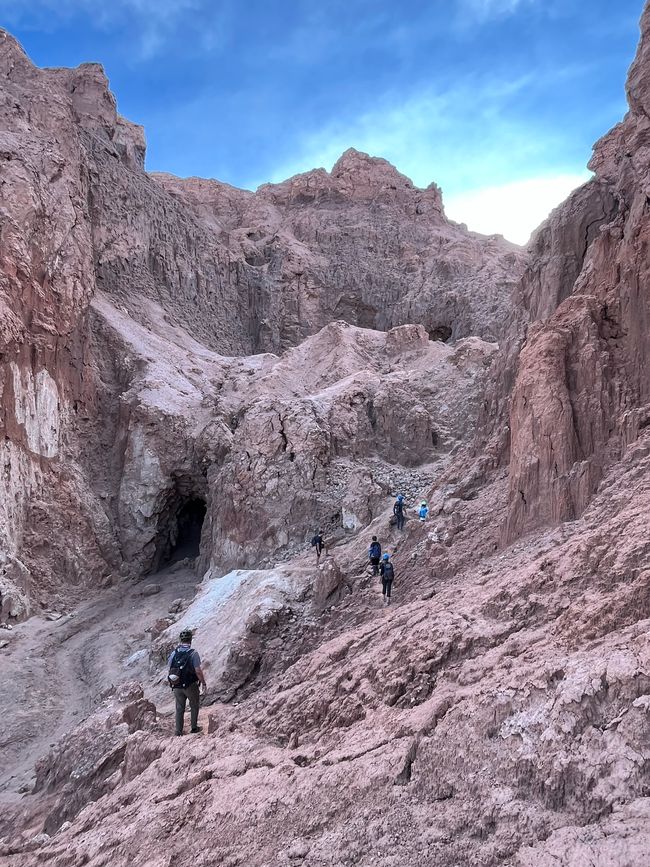
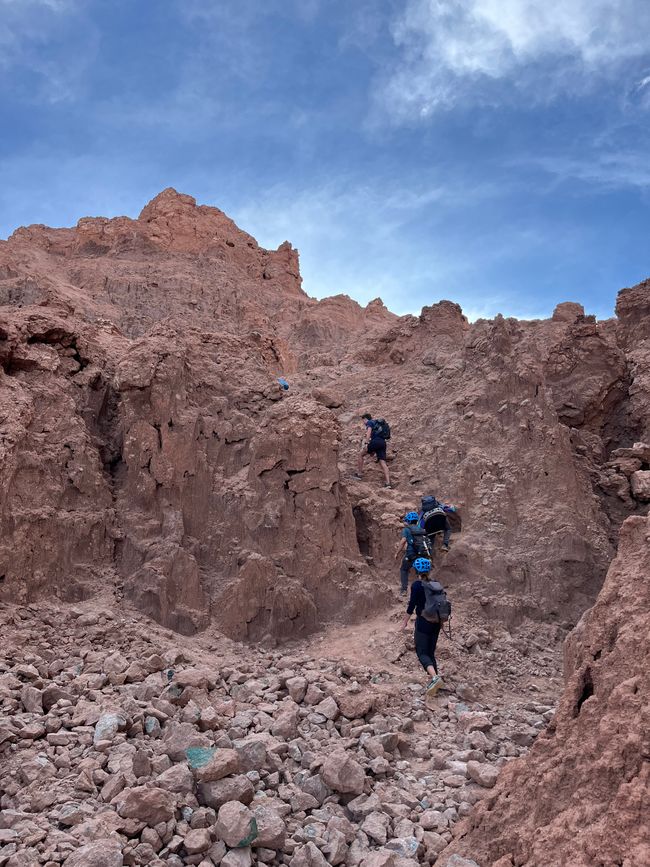
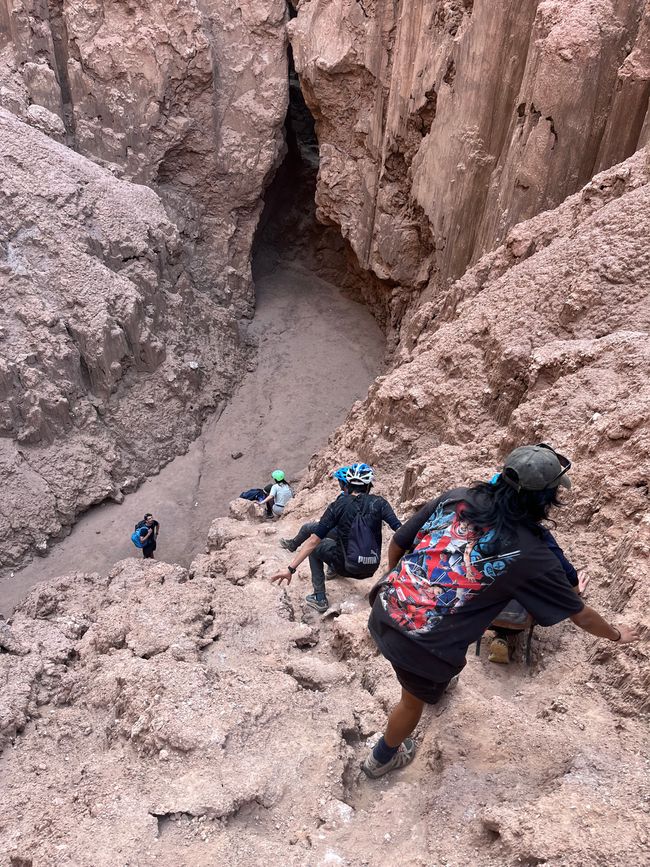
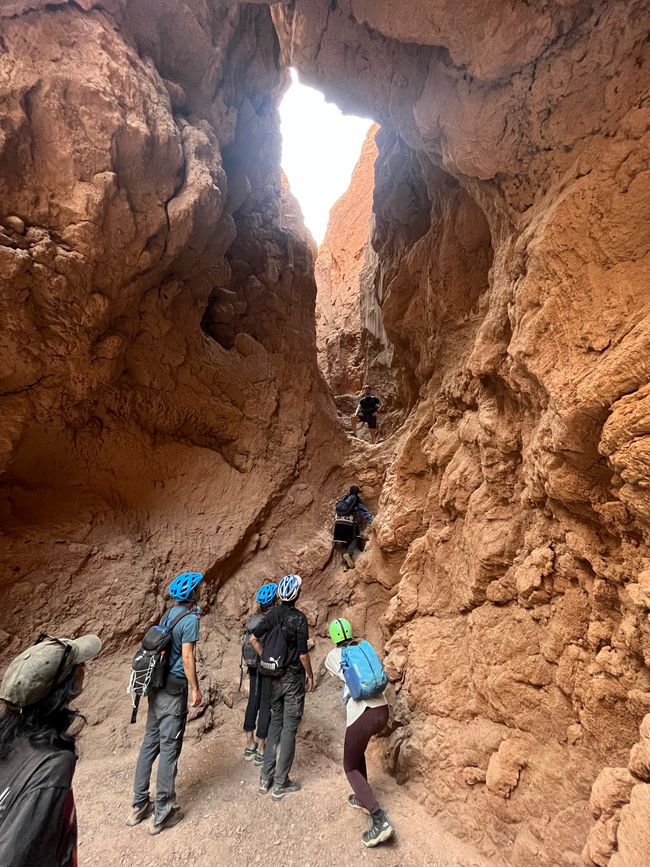
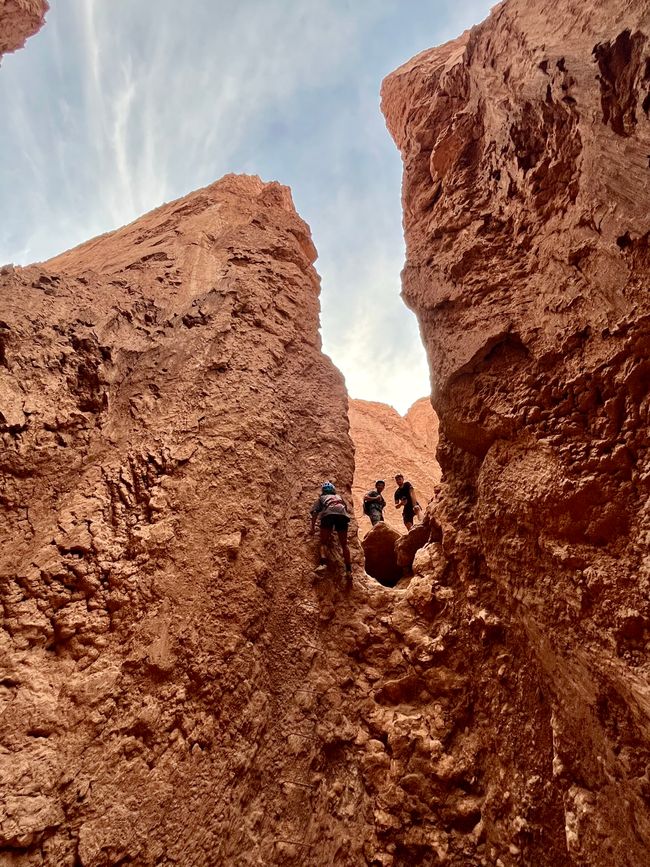
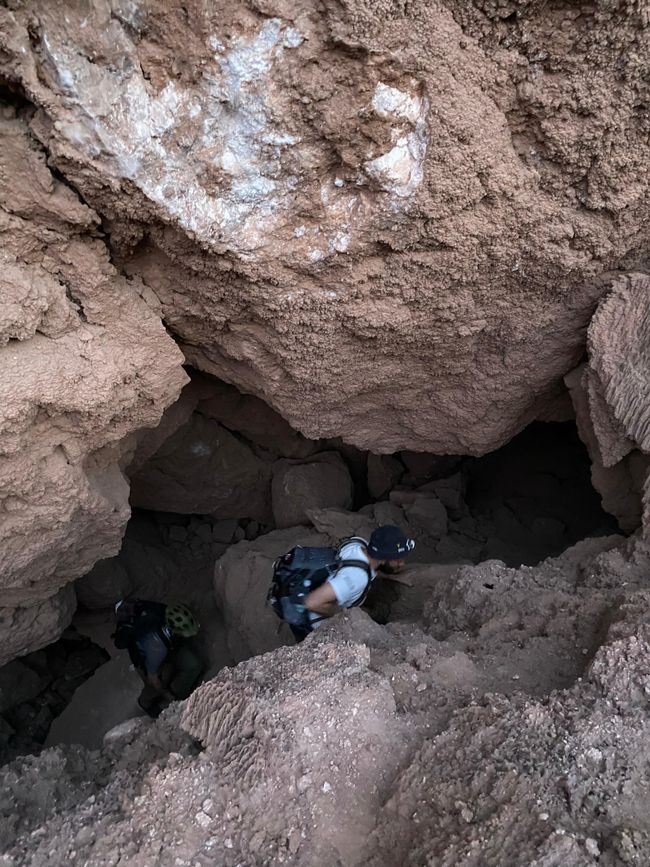
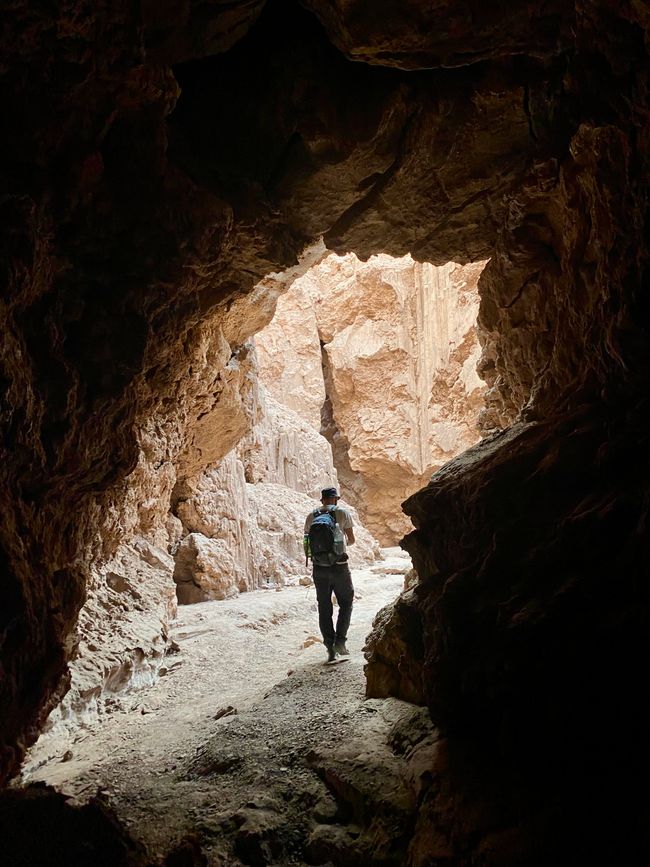
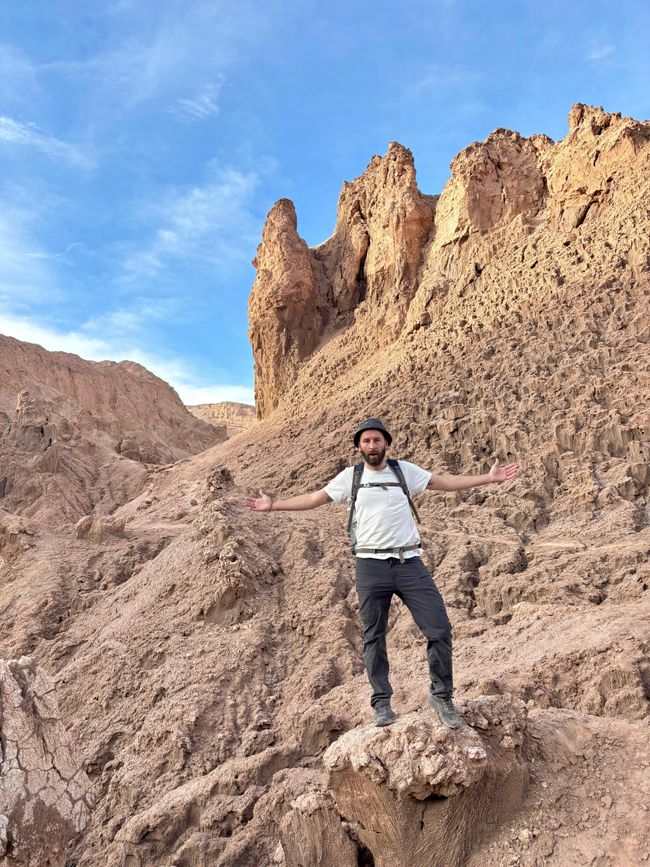
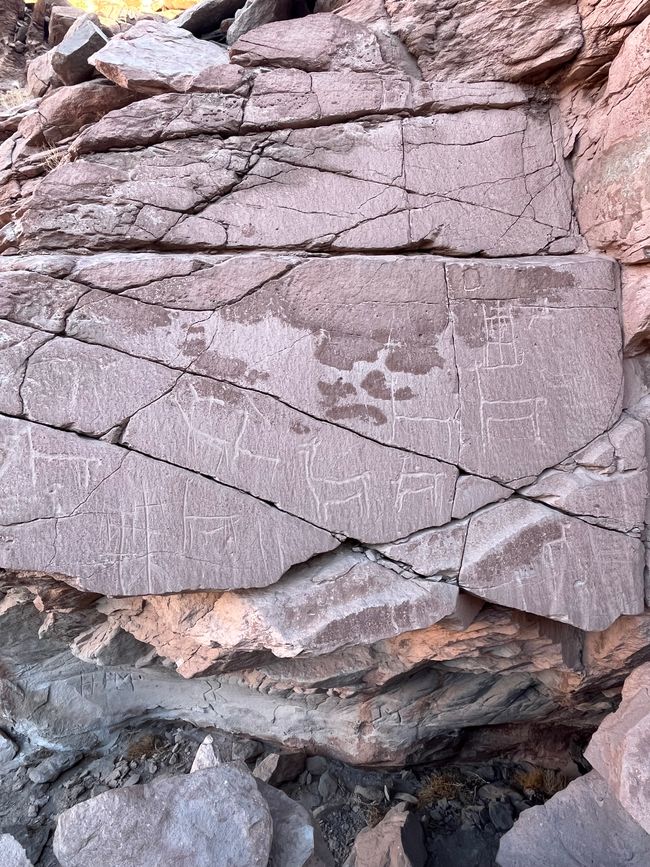
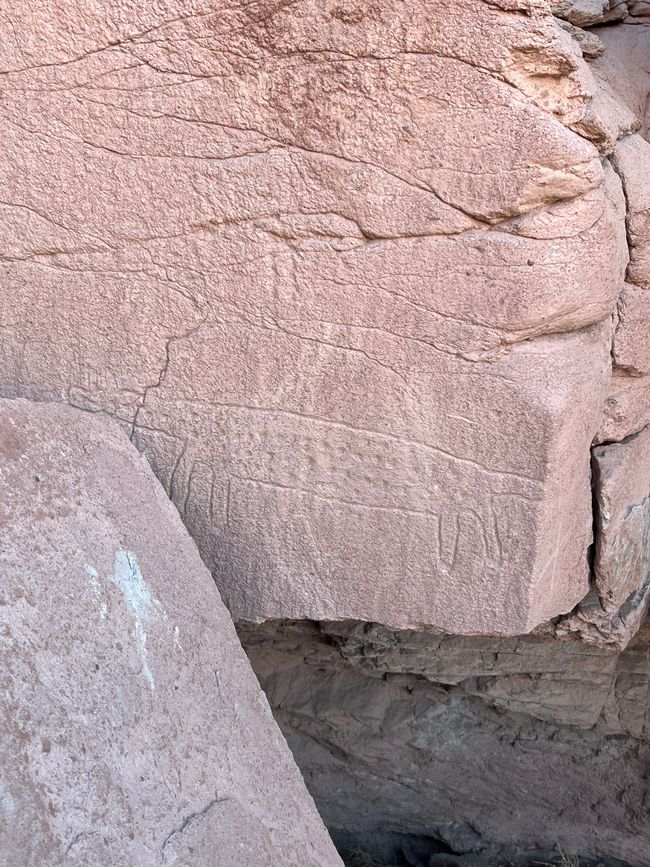
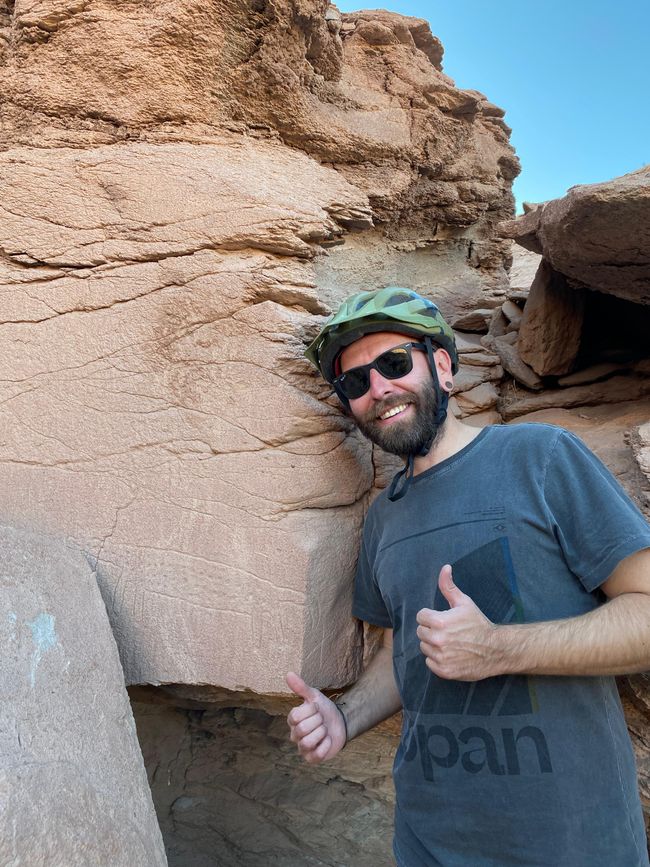
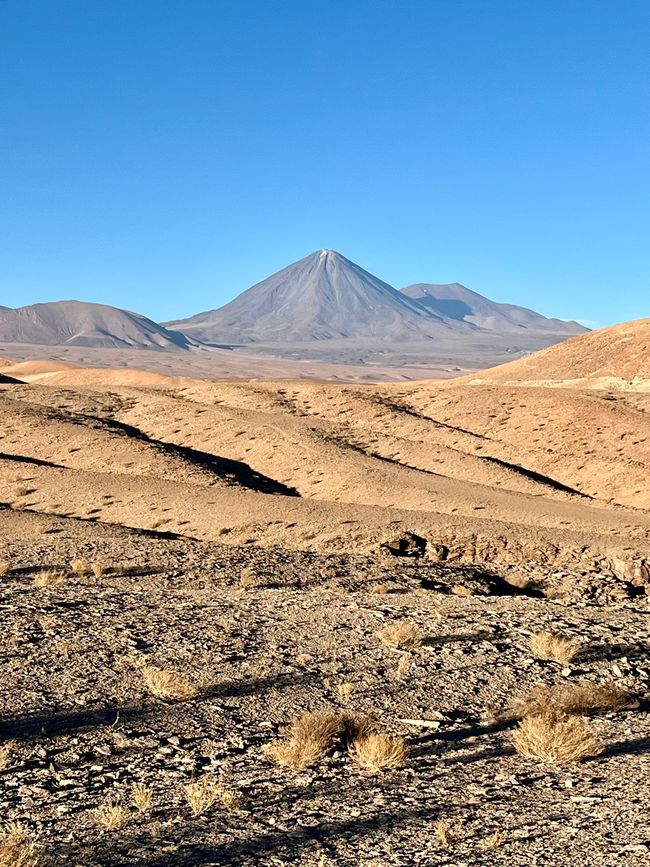
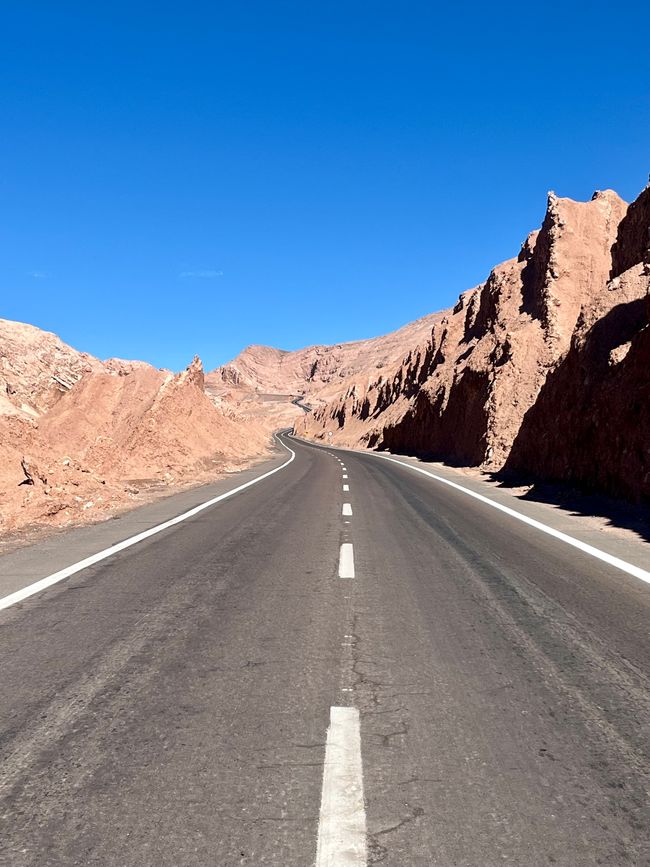
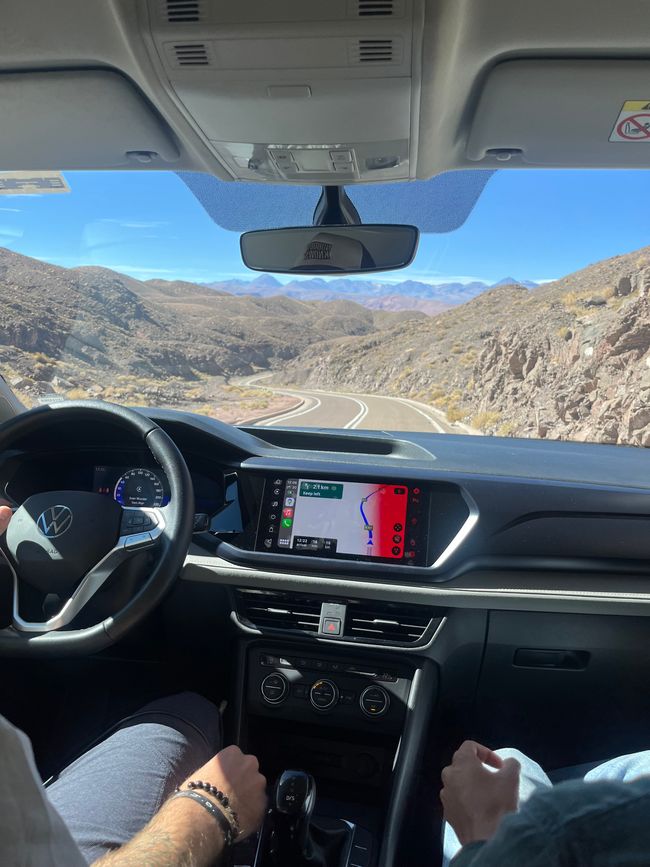
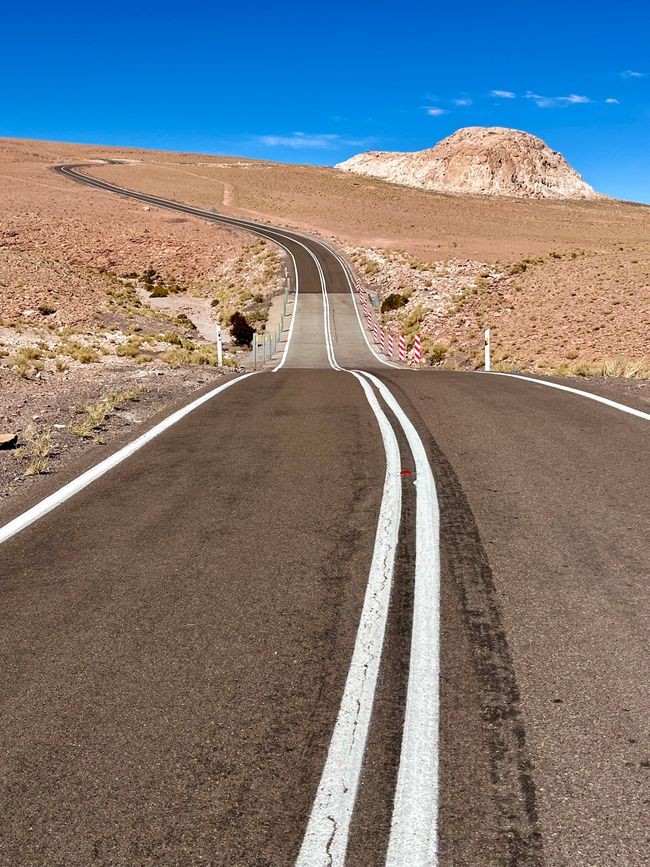
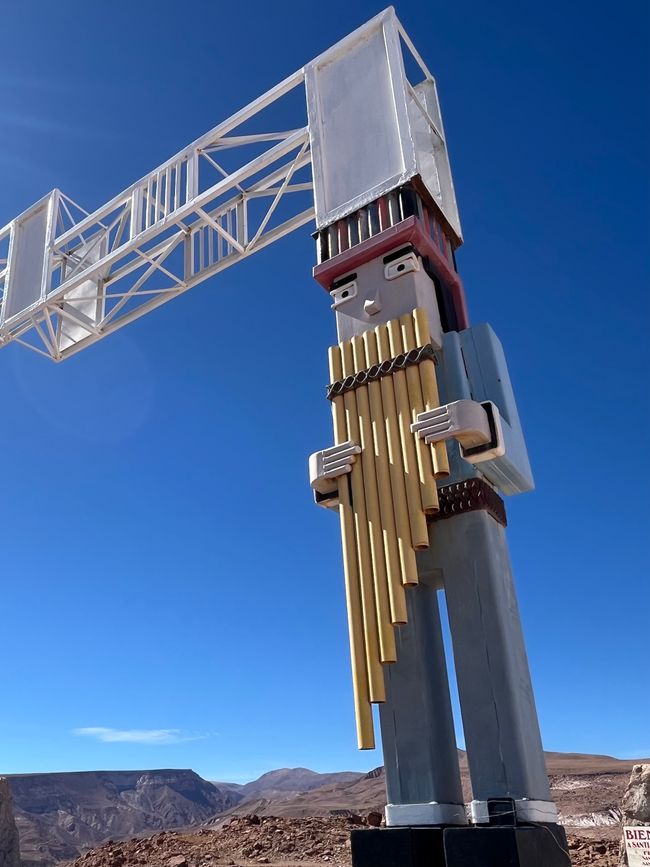
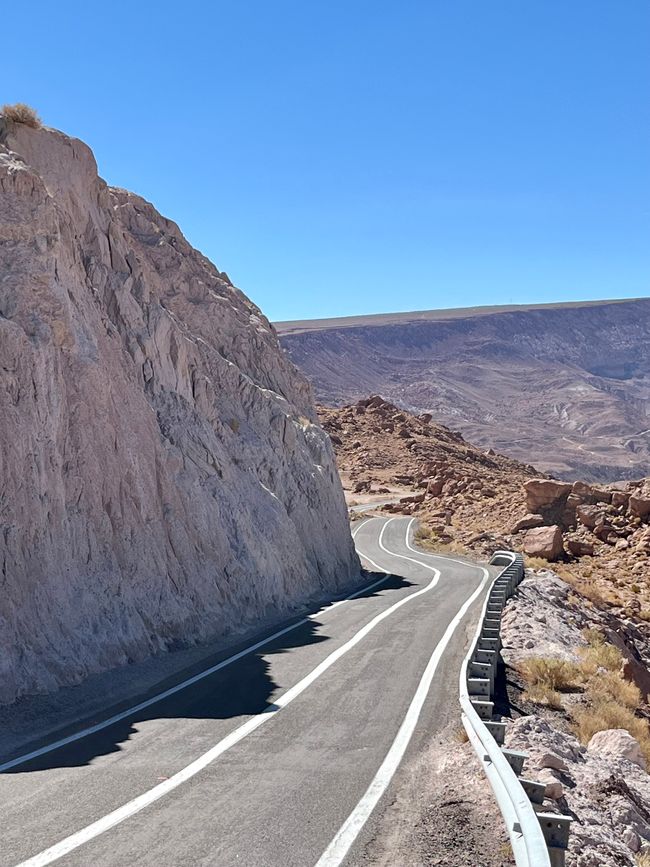
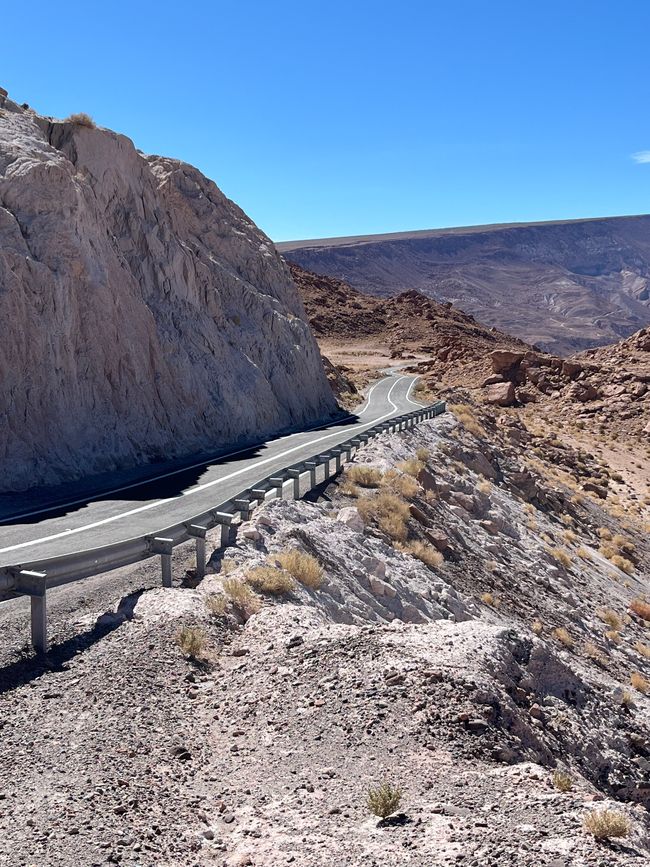
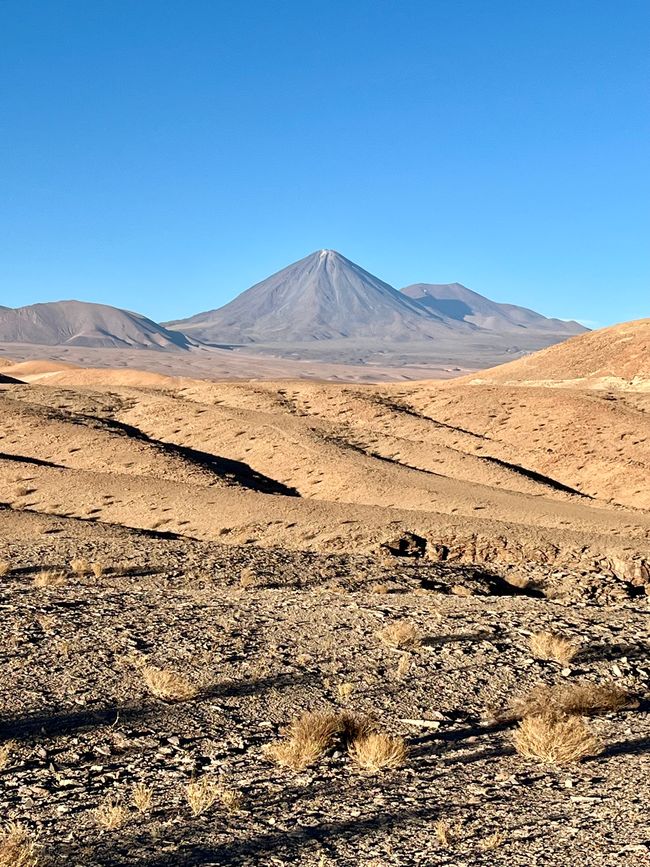
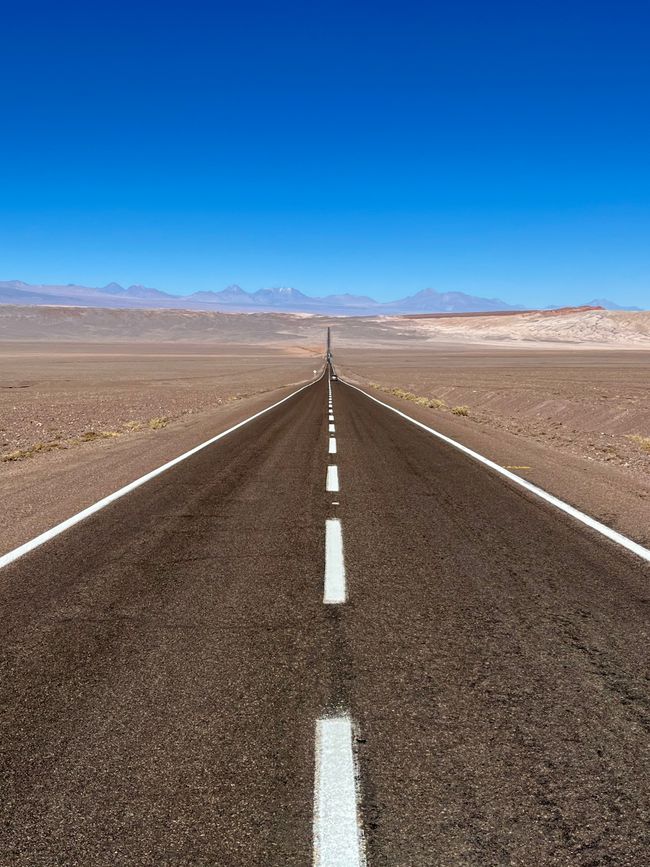
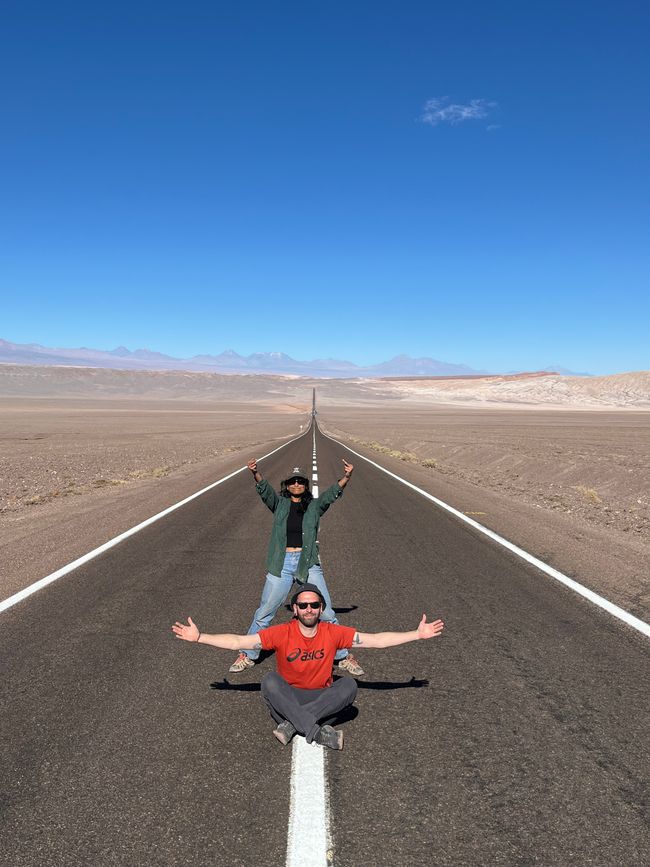
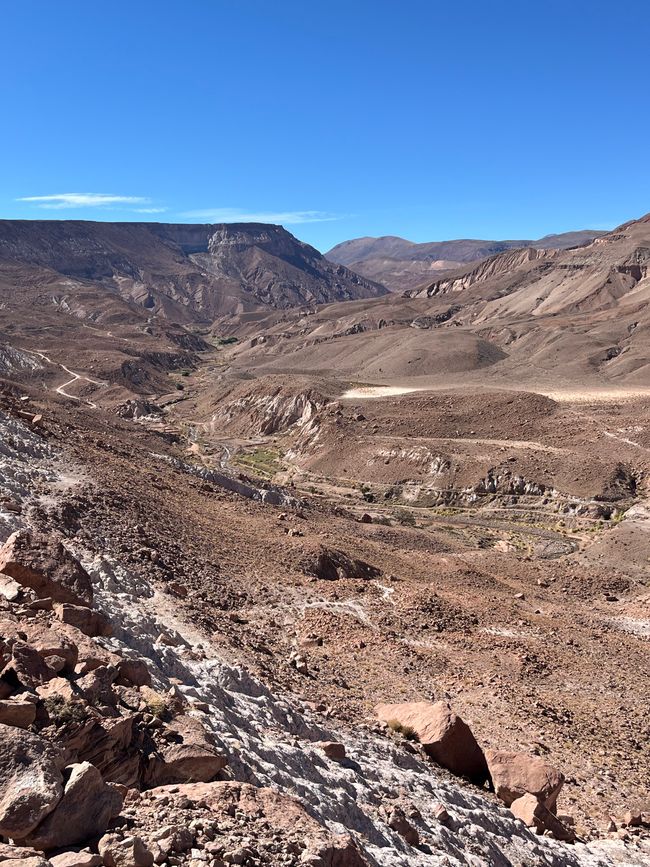
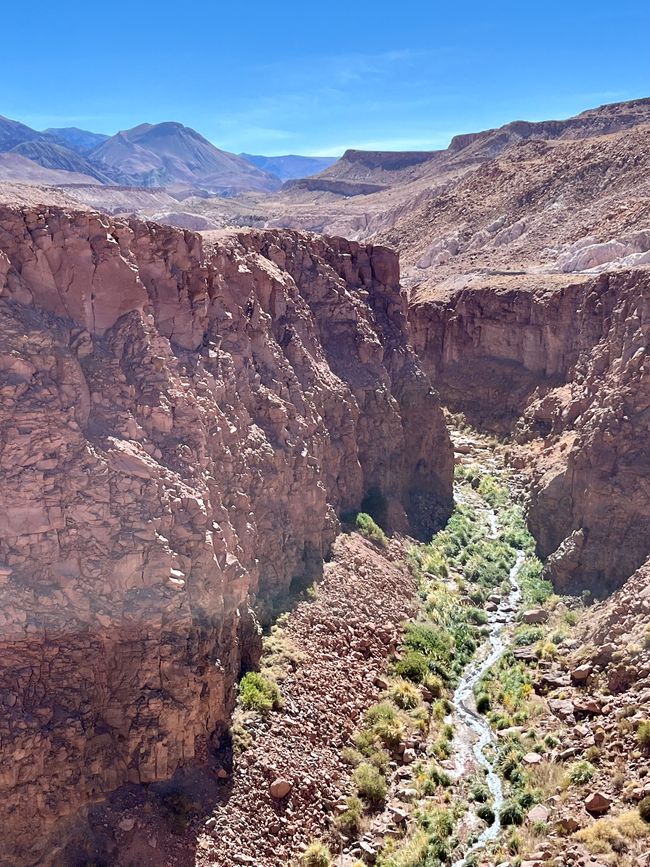
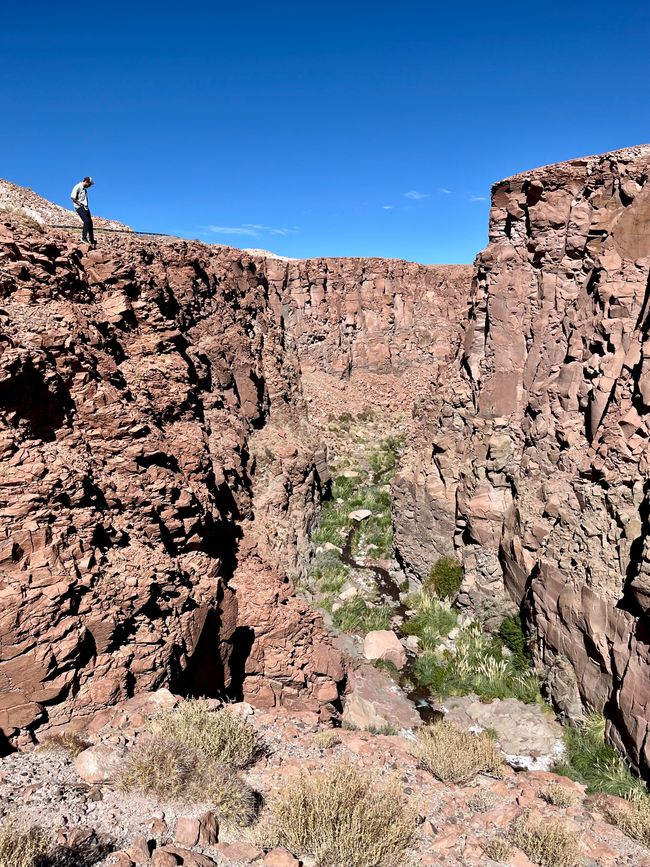
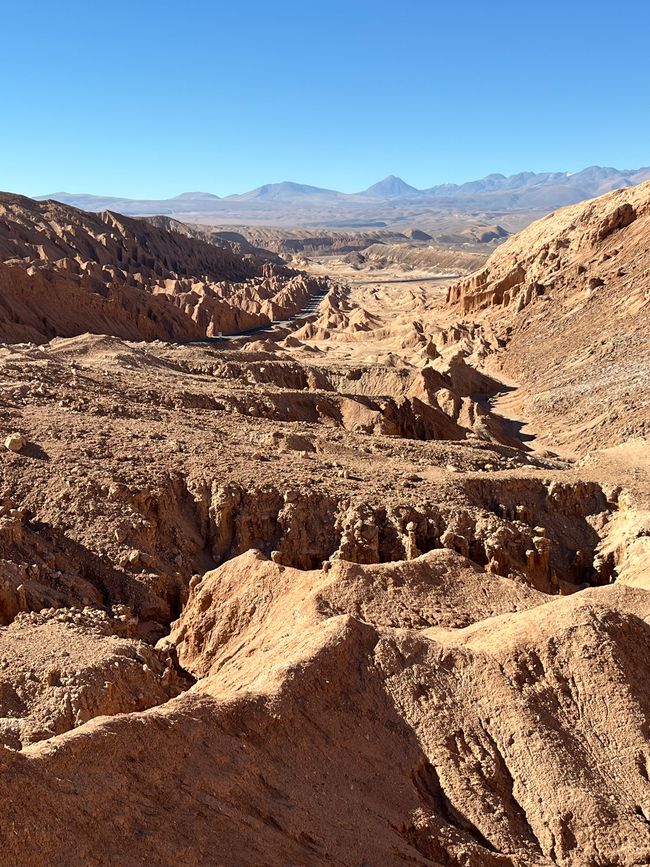
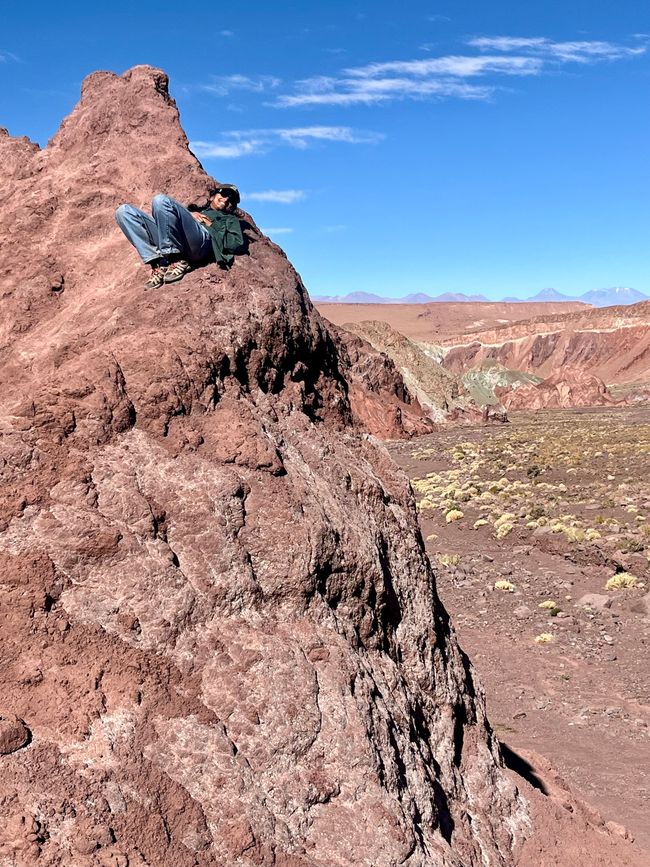
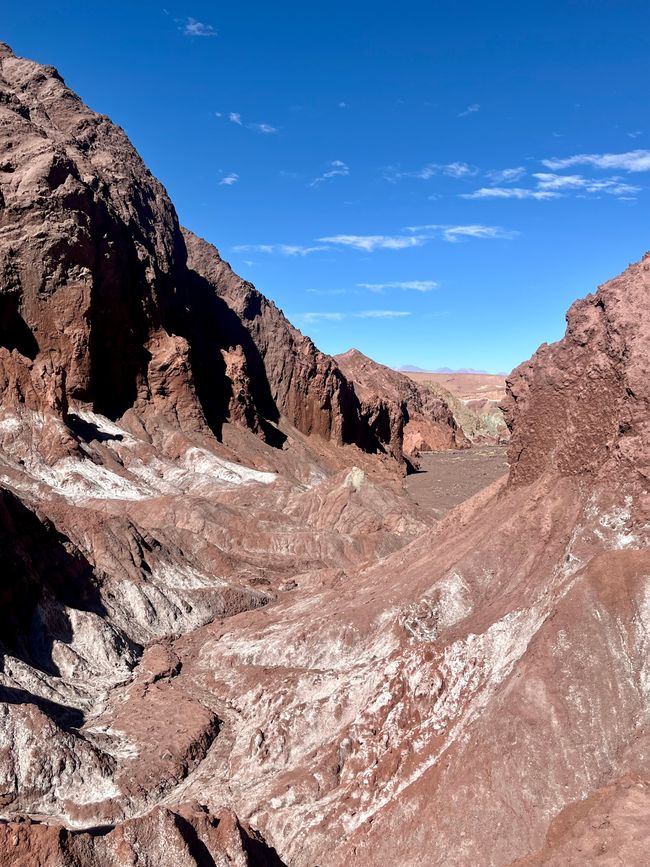
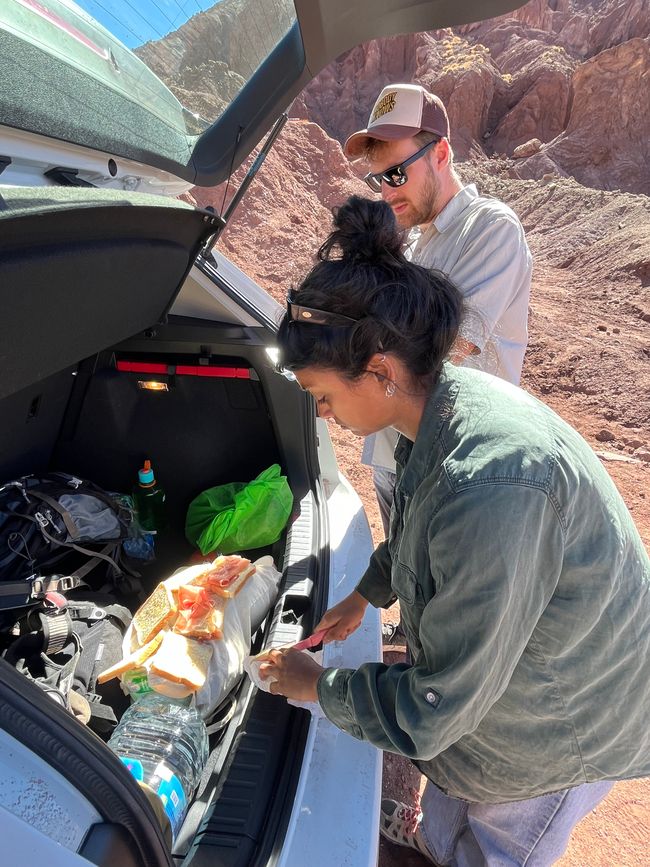
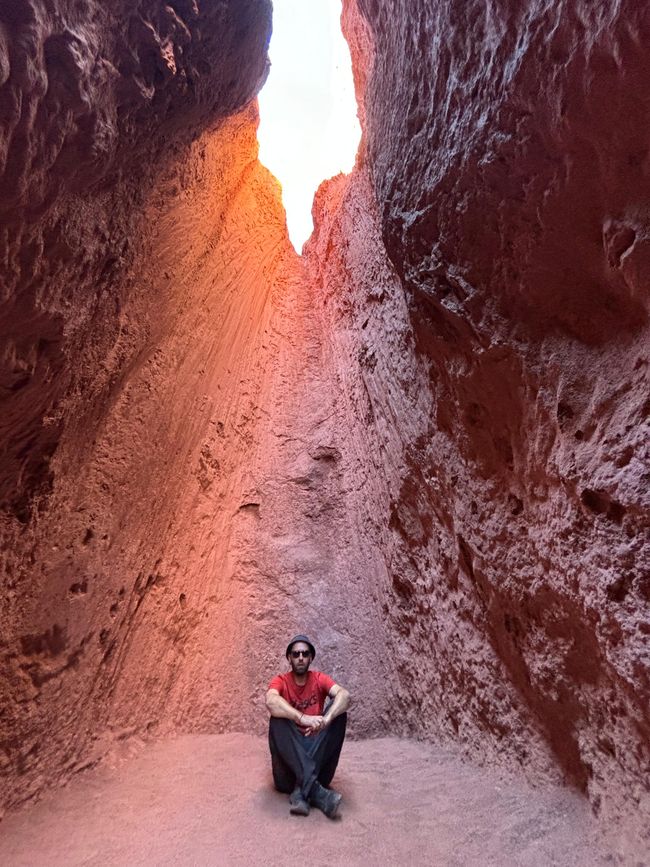
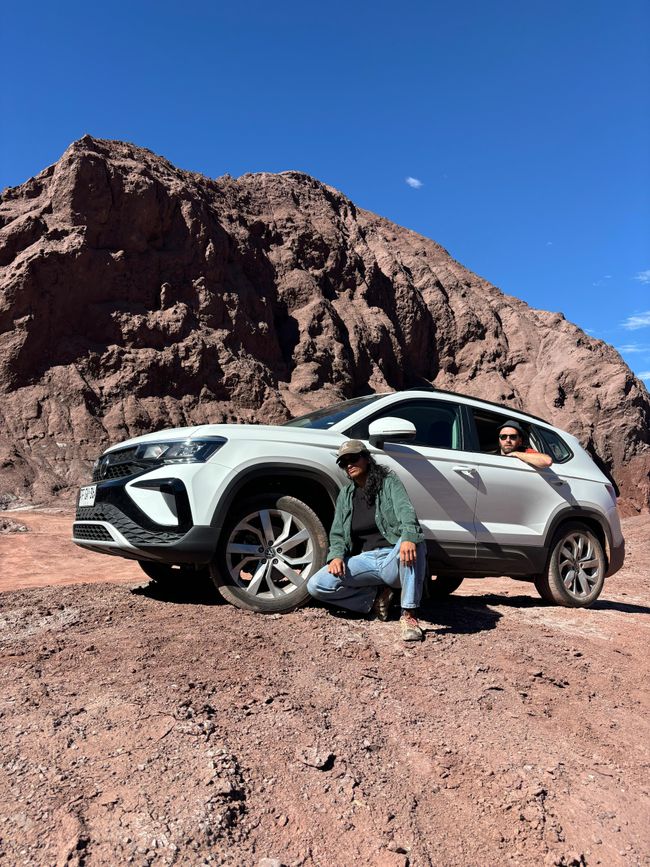
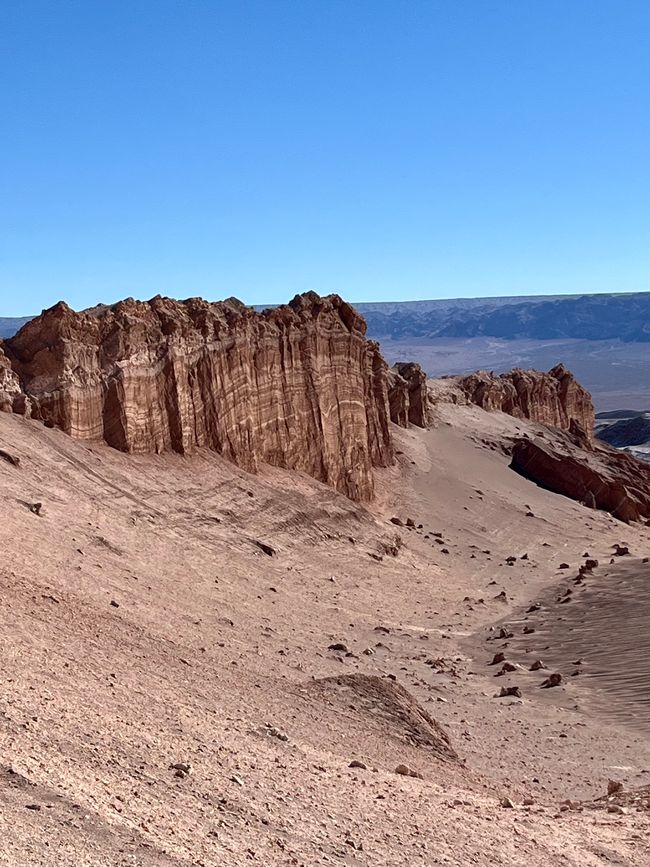
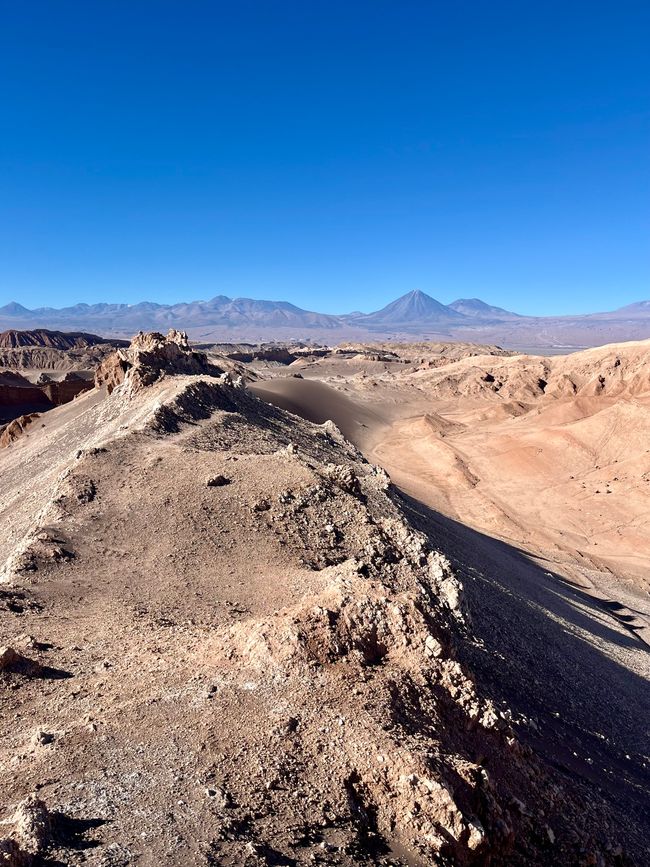
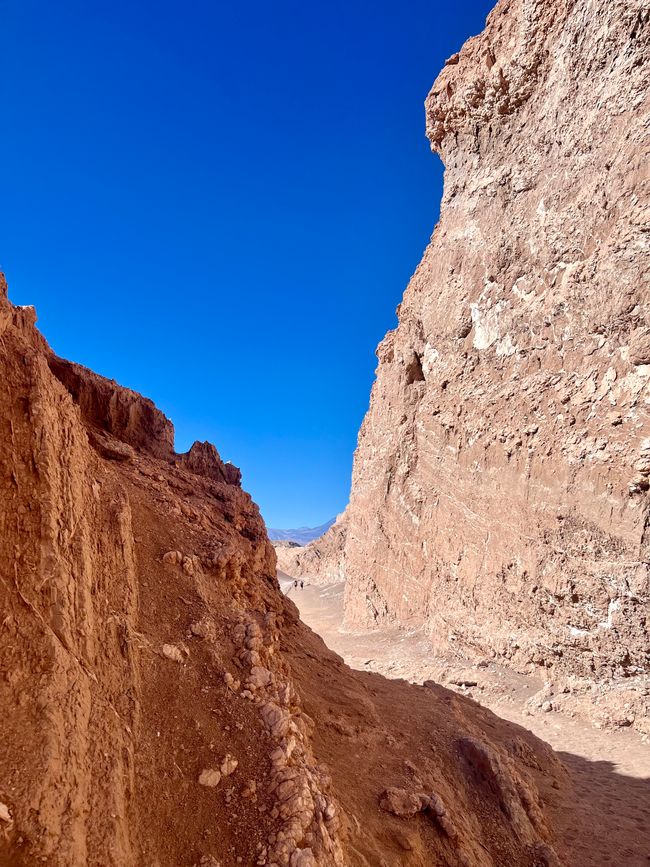
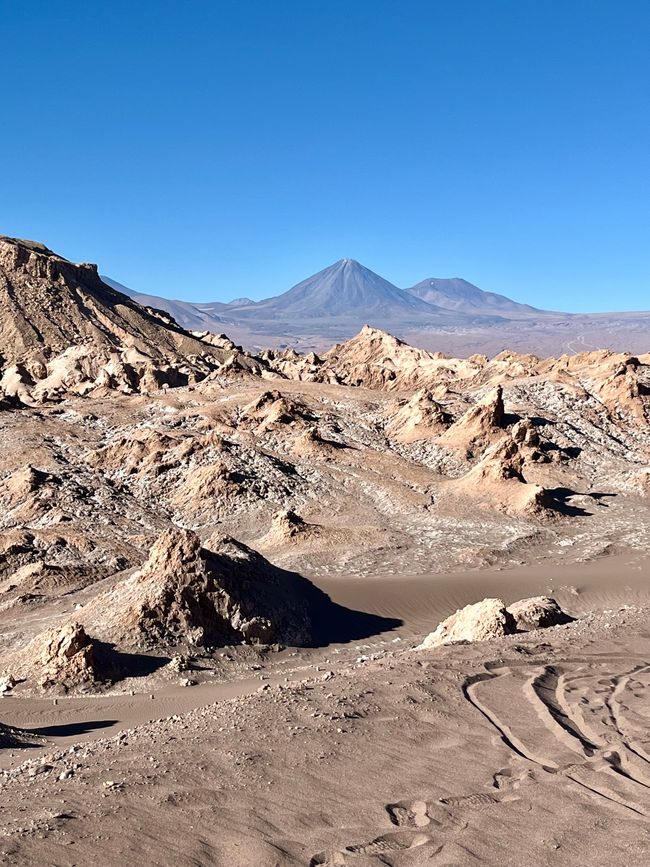
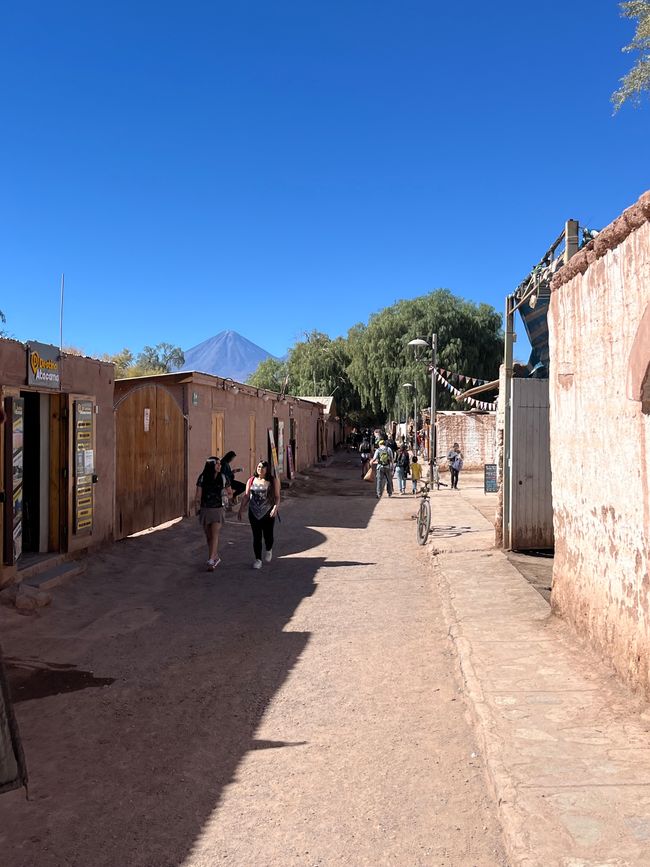
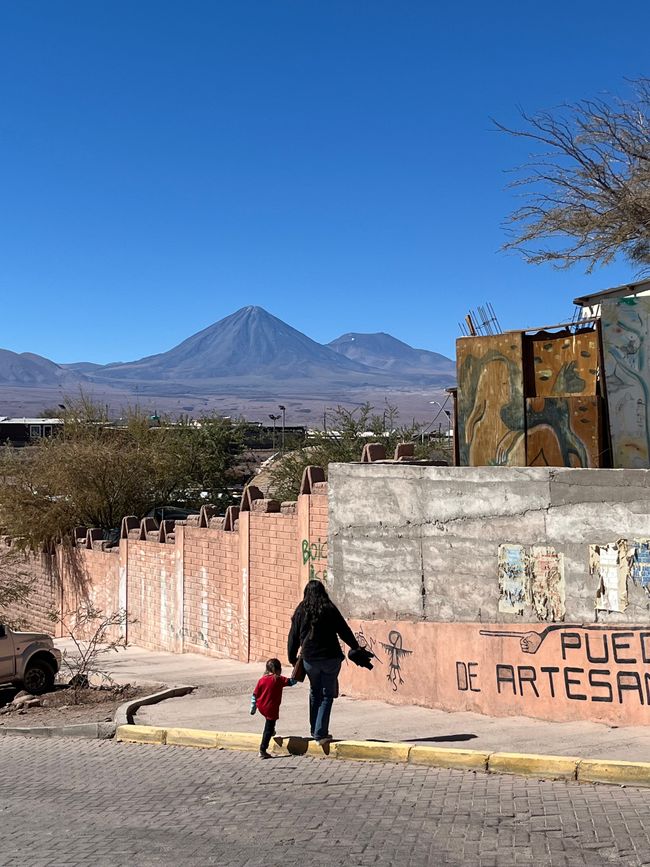
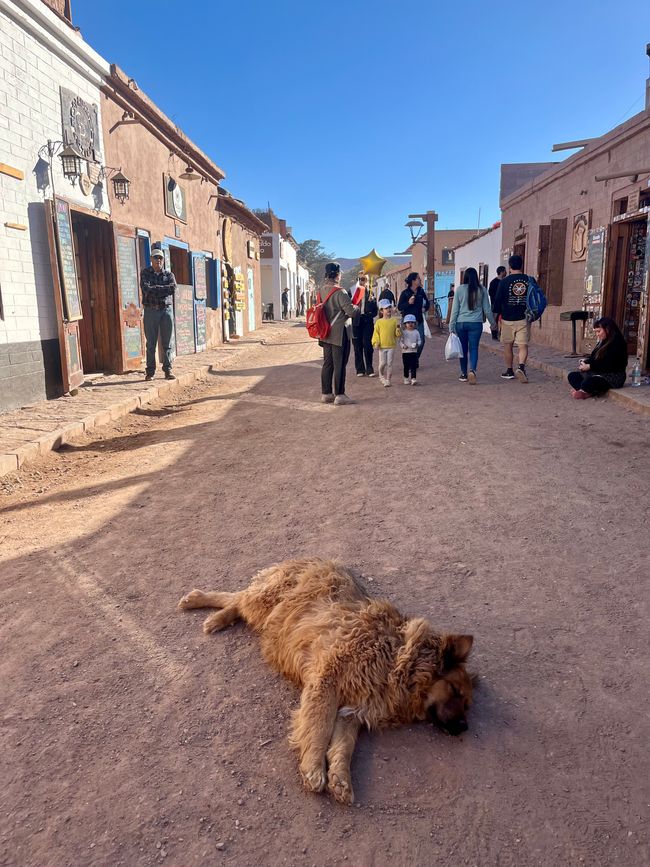
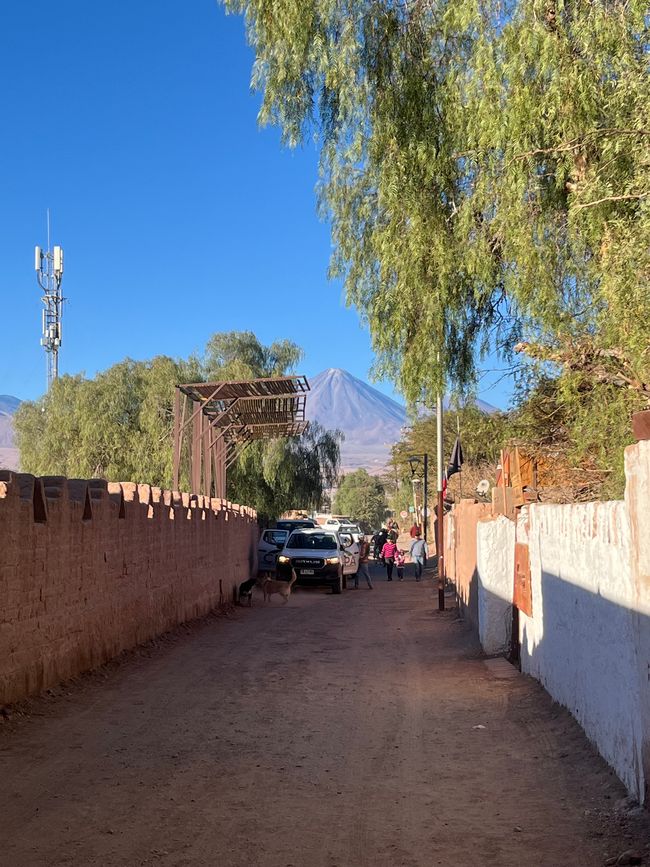
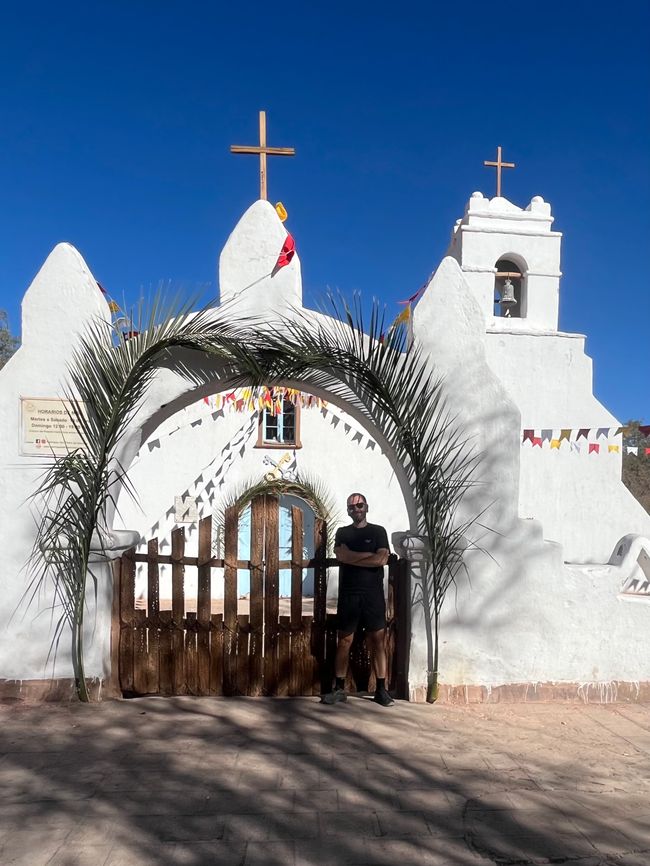
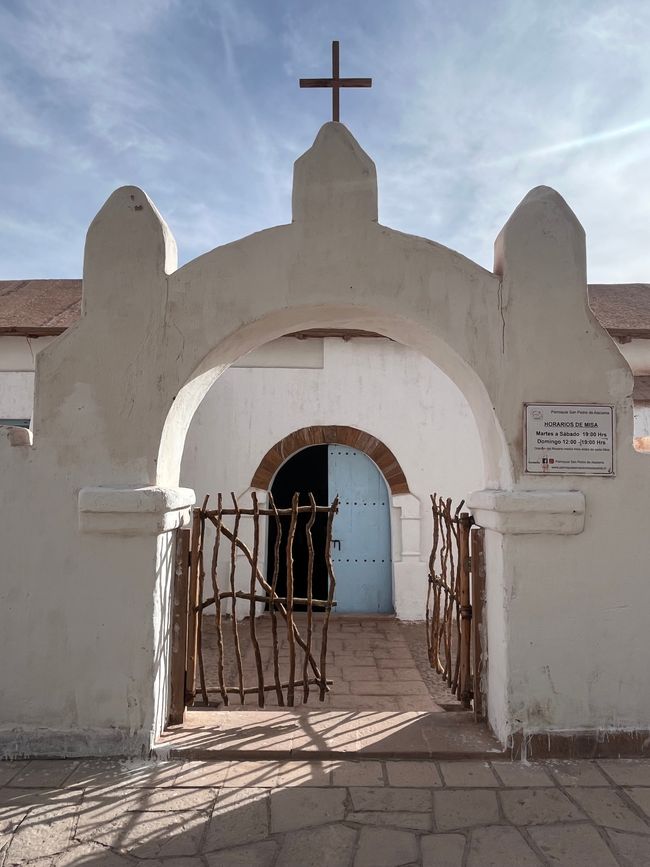
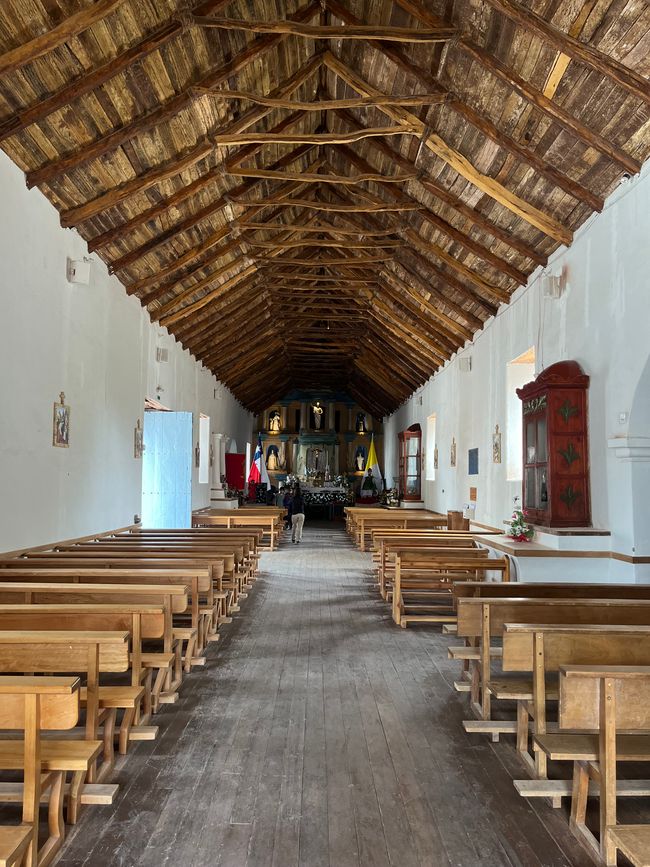
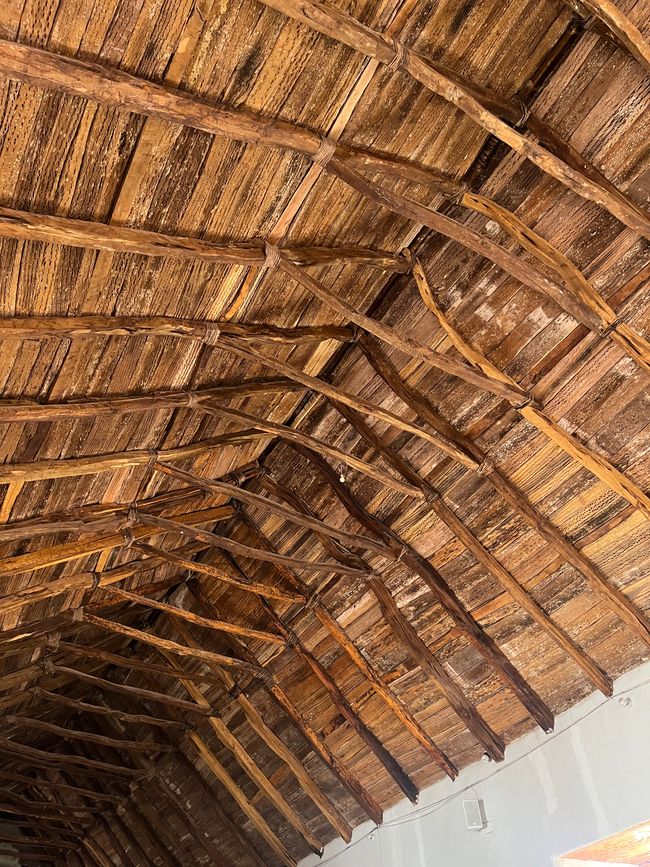
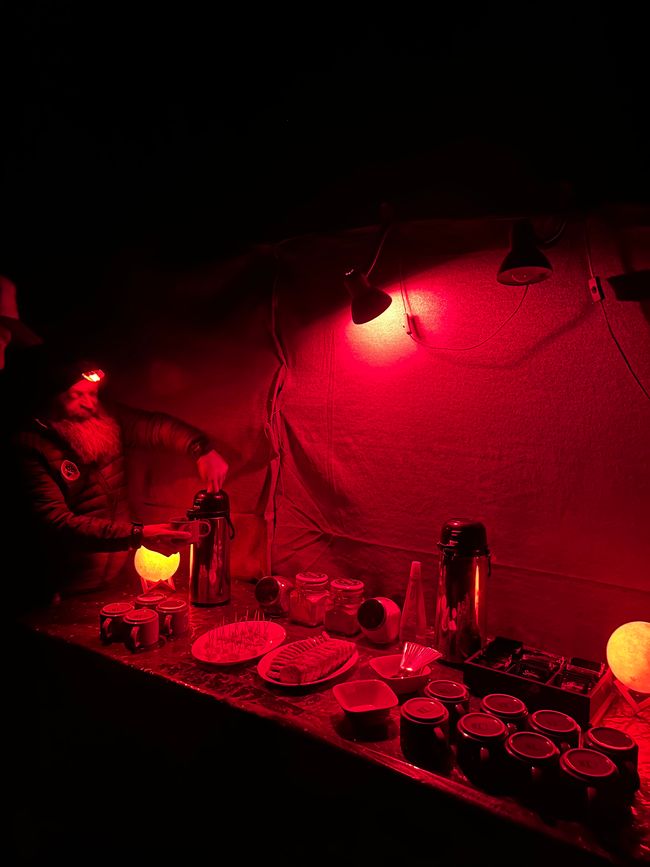
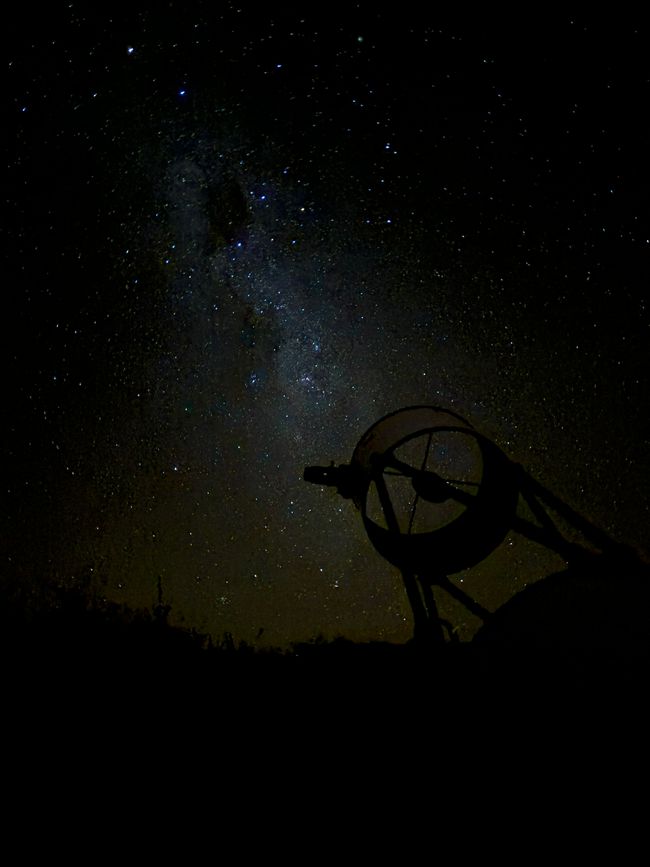
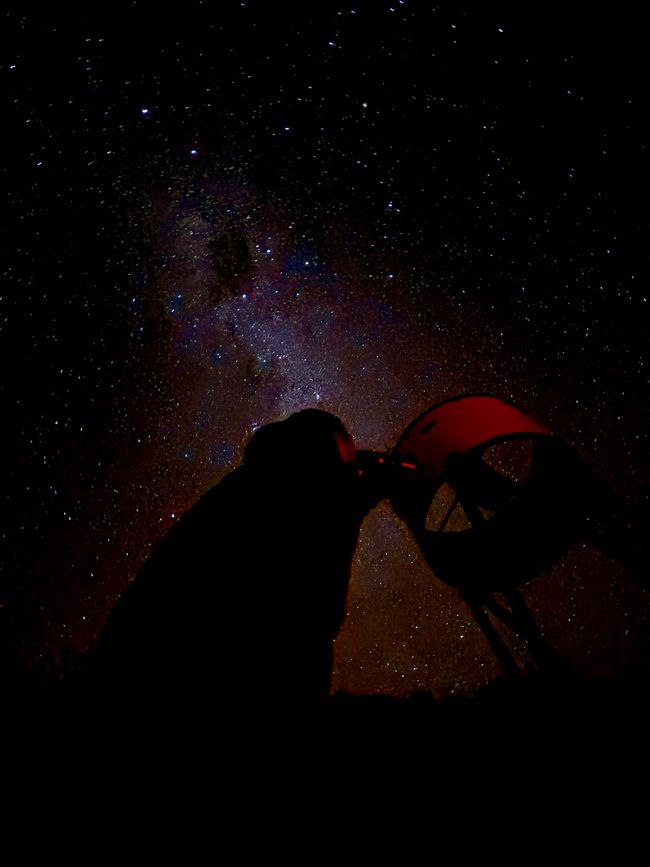
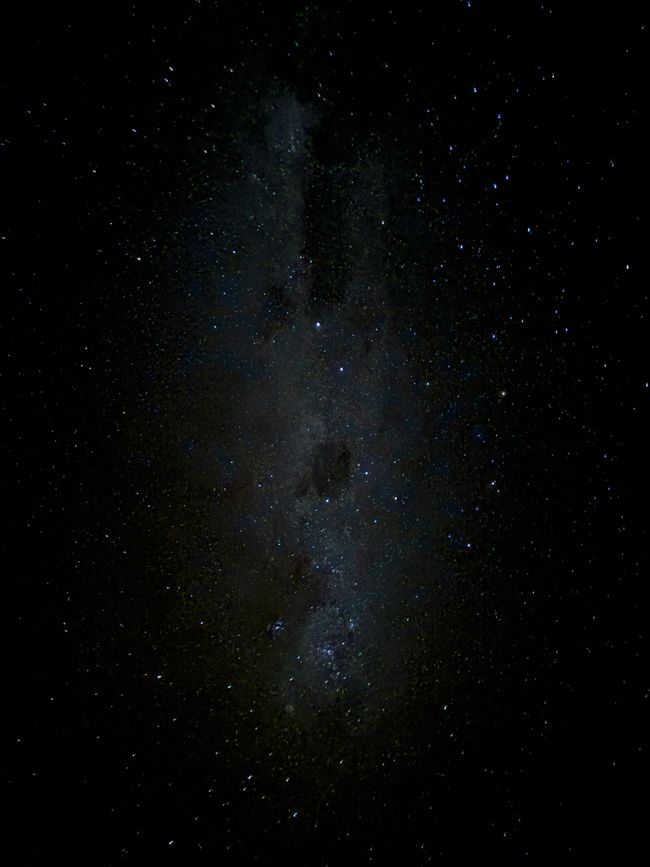
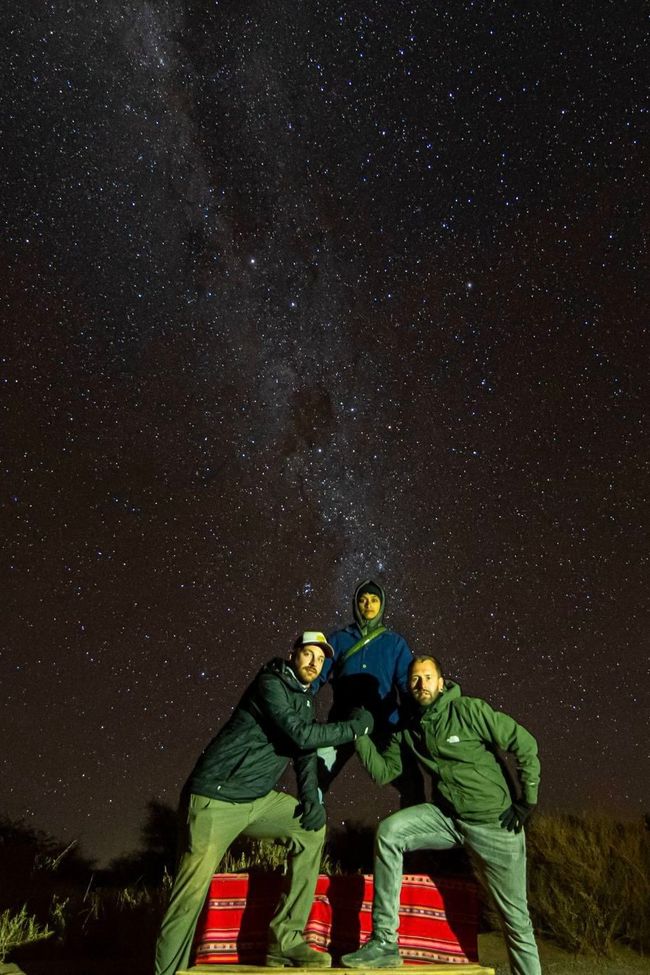
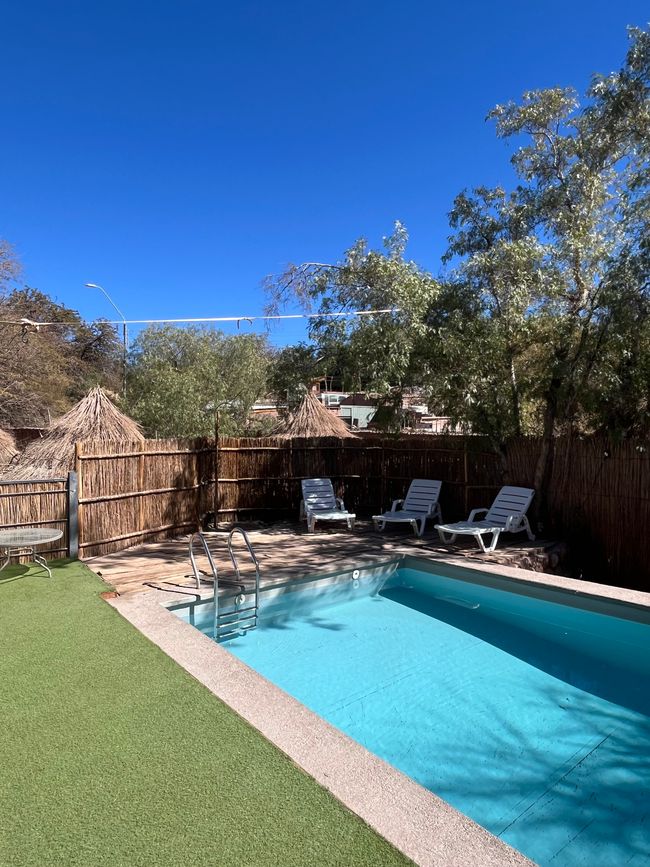
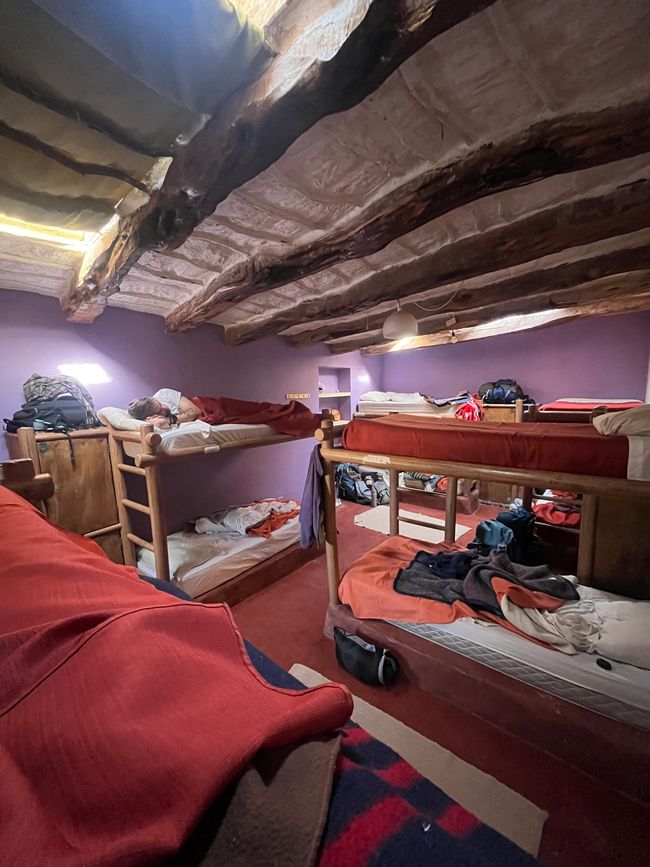
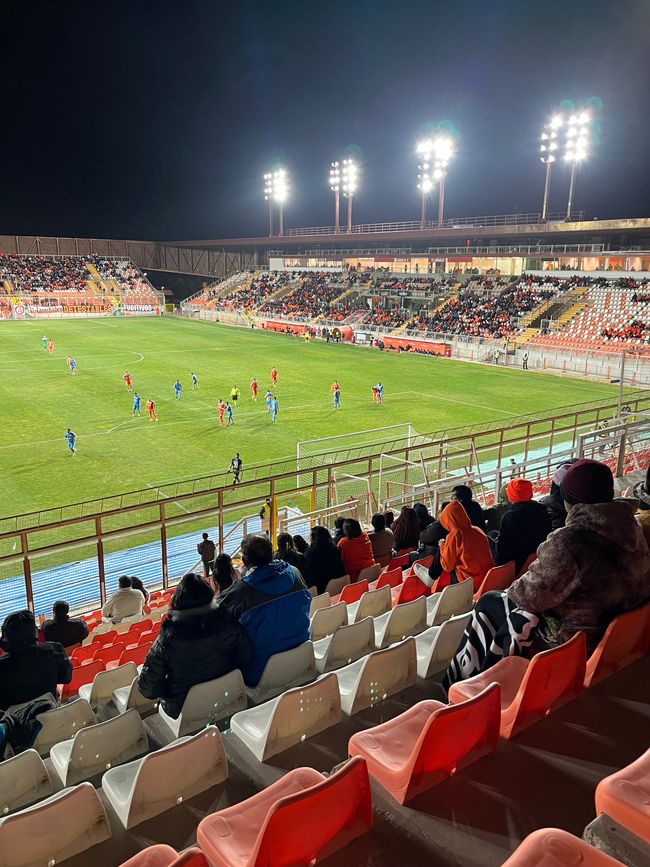
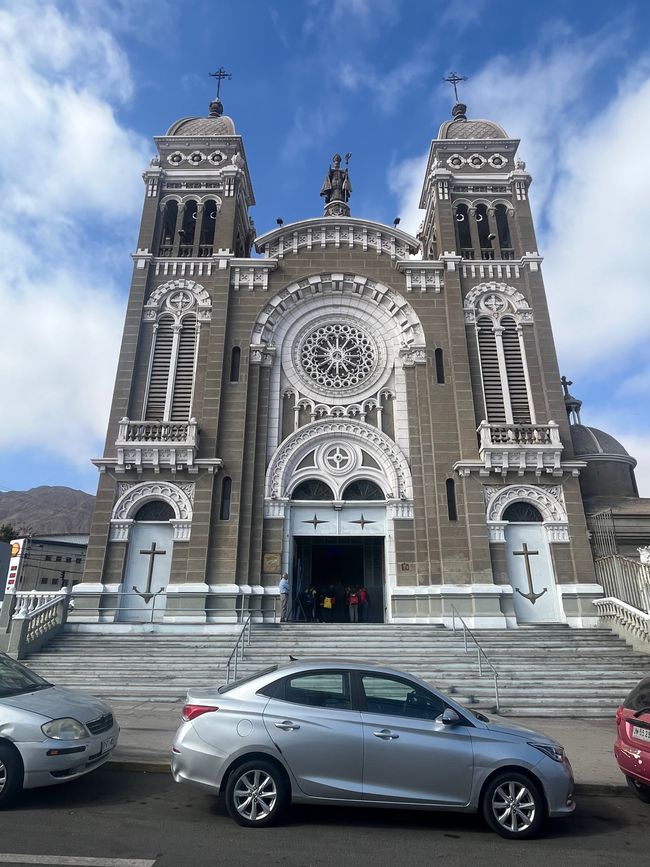
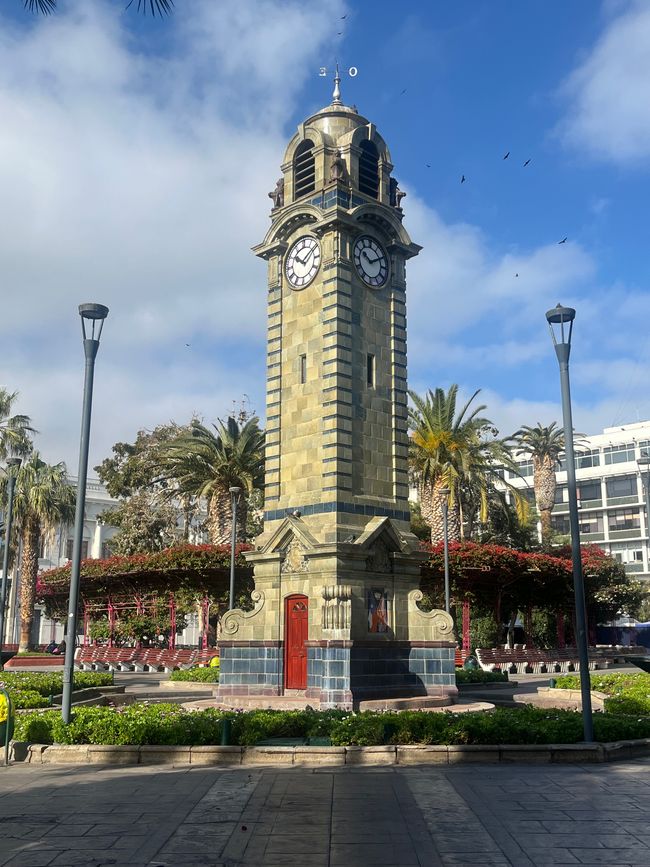
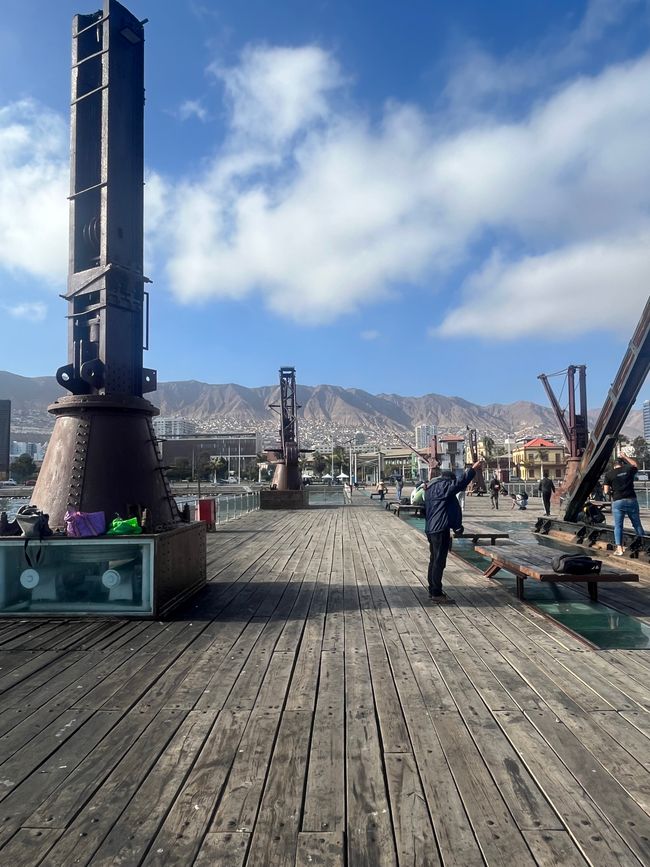
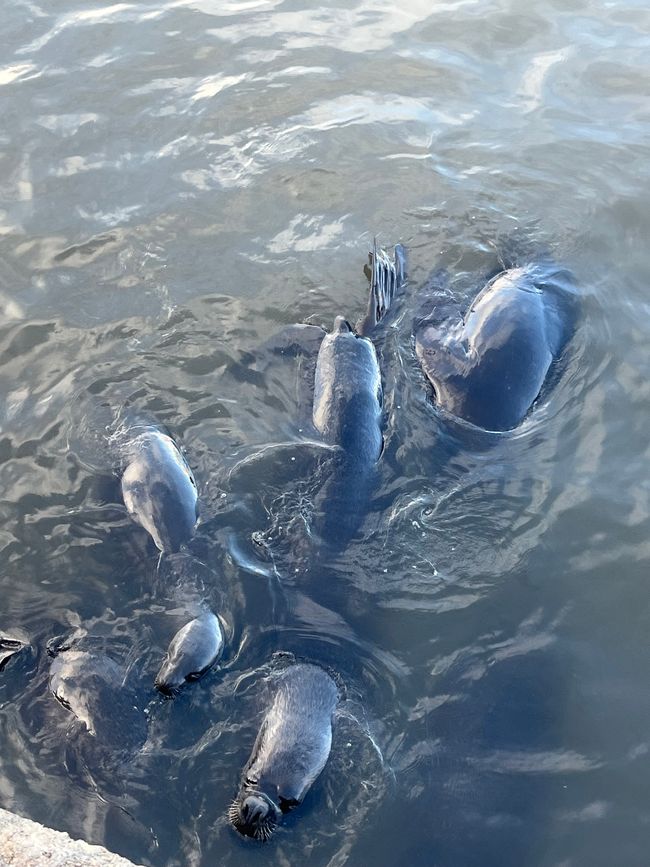
Ejesuscribi Boletín de Noticias-pe
After finally making the leap from Santiago, it was time to head further north. A whole 1,600 km. San Pedro de Atacama would be the destination. A small town in the middle of the eponymous desert, one of the driest places and the driest desert on Earth. The bus drove along the Pacific coast for endless hours, including beautiful views, before it became less spectacular in the darkness and we reached the coastal city of Antofagasta in the early morning. There isn't much to see here: the beautiful Plaza Colon, a few fishermen catching flounder through the planks on the pier, and a group of sea lions were enough to fill our day before heading late in the afternoon to Calama and finally to San Pedro. While the route to Antofagasta revealed nothing new in terms of scenery, the passage to Calama first gave insights into the sparse vegetation of the plateau where the Atacama Desert lies. Gradually, it ascended steadily, past bare peaks and surrounded by sand, stone, and dust. Quite interesting to look at, and above all, a completely different sight than all the landscapes before on my journey. Upon arriving in San Pedro, Colin and I first took stock of the situation. When you've spent what feels like an eternity in the giant city of Santiago, you have to get used to the tranquil and idyllic charm of this small town in the desert. No hustle, no crowds, no chaotic traffic, and most importantly, no rain. This definitely seems like a significant upgrade from the last spot – we treated ourselves to 2 beers after our arrival as the perfect end to the day and went to bed full of anticipation for the next days.
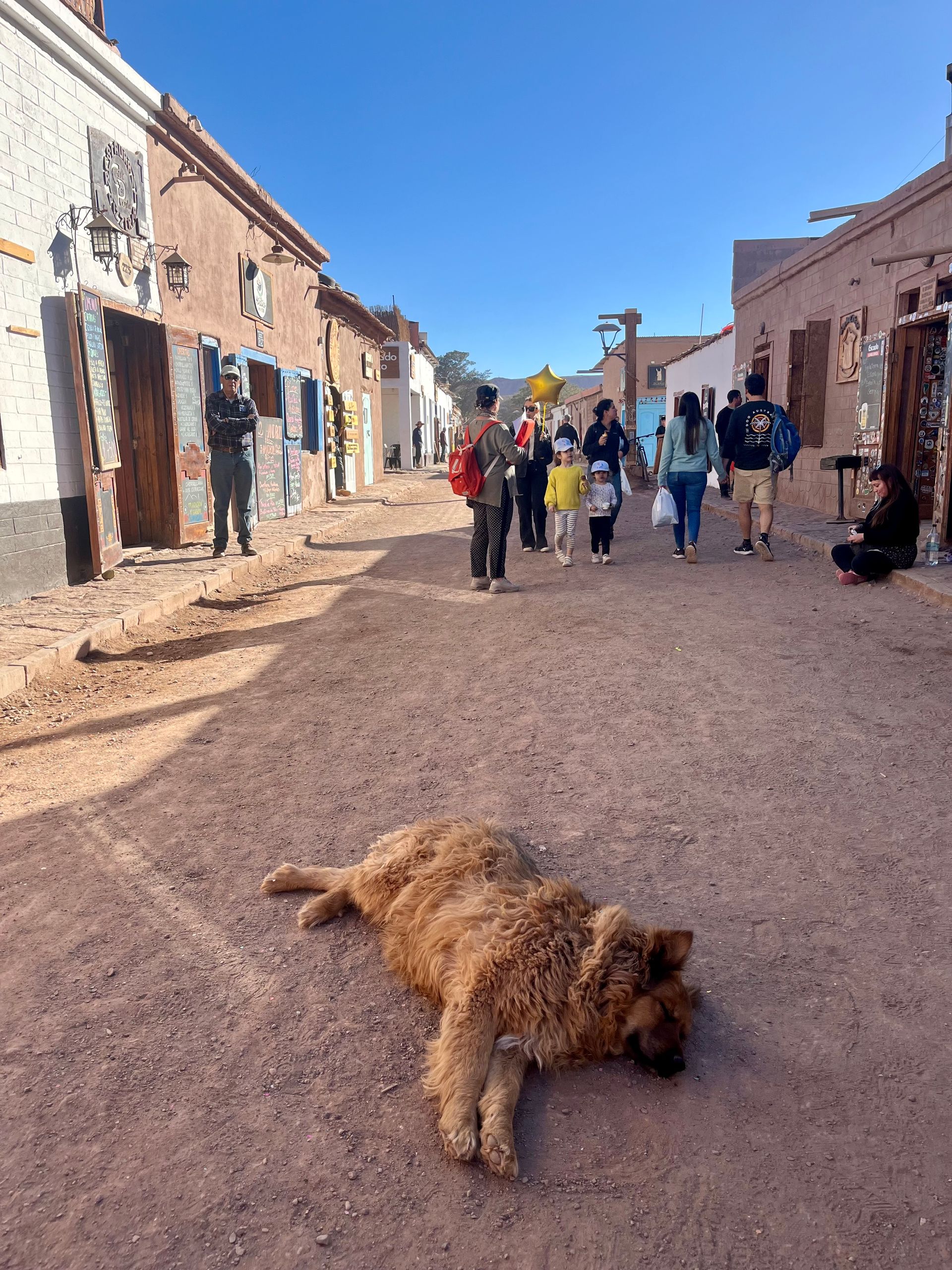
The first 2 days we did absolutely nothing, got used to the new surroundings, enjoyed the summer temperatures during the day, lounged by the pool, made various acquaintances at the really cozy Aji Verde hostel, and indulged every evening at the in-house parrilla with all kinds of grilling specialties. The town seemed very relaxed and chill after initial explorations, the backdrop with the volcanoes Licancabur (5,920 m) and Cerro Toco (5,604 m) looked totally surreal and fascinating, feeling like being on the set of a western movie. Super exciting for sure and an invitation for a variety of activities in the surrounding area, which were on the agenda for the next days.
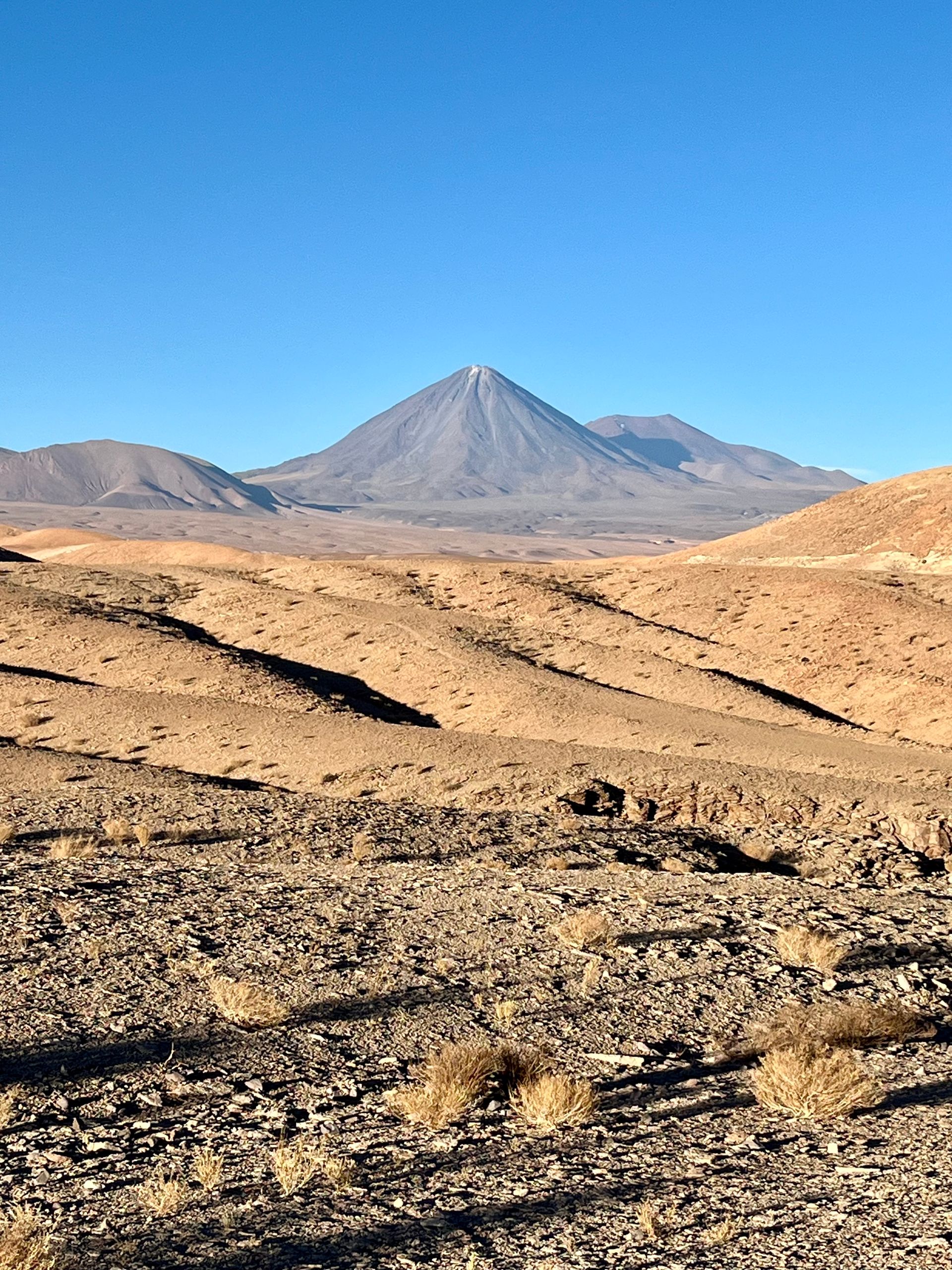
The first excursion was to the so-called Devils Throat, a viewpoint in the midst of a bizarre rock formation, we also had no further information. Just that we should rent bicycles at the hostel and wait for Lina, the funny manager of Aji Verde. In the afternoon, a small group set off on the bikes towards the desert. For the first time, you also felt that you were no longer at sea level but at about 2,700 m above sea level. Just as it went off the paved road into the desert, you had to put in a lot of effort to maneuver the bike through the landscape. After a few minutes over rocks, it became wild and the climb was steep. Not that walking was straining enough; now the bikes had to be pushed up the hill as well. Mountain climbing with a bike, so to speak, I hadn't done that before either. Exhausting but also fun, especially the swearing of Nim, an Australian who was staying at the hostel, made the whole affair rather amusing. After we had crossed the summit, Lina showed us some rock paintings that were somewhat hidden. Various wild animals, sun deities, and other beings were immortalized here in the rock. Allegedly, these paintings are 2000 – 3000 years old. I couldn’t find anything concrete about it in the vastness of the internet, so we wanted to trust Lina here, even though we briefly debated in the group whether a group of school kids had pranked with a screwdriver just before us. In any case, the paintings looked interesting and I had never seen anything like it before. We continued with the bikes until we reached a viewpoint just before sunset and could overlook the entire valley from there. An absolutely impressive view. The rock formation in the valley and the Licancabur in the background made the whole scene resemble a landscape on Mars rather than any earthly canyon. Additionally, there was an idyllic calm in the air, and I enjoyed this surreal sight for a few minutes before we moved on. Eventually, it began to get dark and we were supposed to ride the entire canyon by bike. So, headlamp on and off we went on this wild ride. What a brilliant landscape unfolded on the left and right as we rolled through the gorge. In the half-light it was almost a bit mystical, and you had to be careful not to hit your head somewhere. In places, the rock formations jutted just a few meters above the ground into the path, and small caves and rock arches were also traversed. It was unfortunate that by the end it was almost completely dark, so that you couldn’t see much of the beautiful landscape anymore, yet it was still an absolutely impressive experience to zoom through this bizarre scenery on a bike. Just before reaching the city limits, we stopped briefly and marveled at the night sky. Since we are in one of the driest places on Earth and also one of the places with the least light pollution, one can see the structures of the Milky Way with the naked eye. Thus, the view upward was nothing less than awe-inspiring, and one could only roughly guess how many stars were currently appearing above. Absolutely stunning how such a night sky can look.
The next day, the same game: On the bike and out into the barren rocky landscape with again an unknown destination. Since Lina turned out to be an excellent tour guide, we blindly trusted her and soon found ourselves back in rough terrain. Same terrain - different place, so to speak. Chulacao Caves is the name of the place. A whole cave system in immediate proximity to San Pedro. The bikes were stashed somewhere between the rocks, and we proceeded on foot. First, we went quite a way uphill before we found ourselves in front of a massive entrance in the rock, and this time it would descend into a kind of cave system. Exciting and fascinating at the same time, after the descent, one found oneself on a path inside the cave, and we made our way through pitch-black and partially only crouchable corridors. In between, there were always climbing inserts up and down; one had to be quite careful not to get stuck with any body part on the rocks. Unfortunately, not everyone in our group had the last concentration and luck on the rather demanding terrain, and Chao, a Taiwanese who was already out with us the day before, sprained his ankle. Since we were in the middle of the cave system, it was quite a challenge to get the injured colleague back to daylight, which ultimately succeeded with the help of the whole collective. By now it was pitch dark, and the announced sunset from another viewpoint was unfortunately missed due to the mishap. Well, it’s not so bad, luckily, the colleague didn’t suffer anything worse, and after we all reached the bikes, the rest of the way turned out to be quite straightforward since the injured person could almost roll back down into the town with us. So everything ended well, and by the end of the day, we were able to gather again with only minor injuries for the barbecue at the hostel. Chao would still limp in the following days, but fortunately, the leg injury turned out not to be serious.
For the following days, we took the bus back to Calama and rented a car. We, that is Colin, Nim, and I - because for the unbeatable price of 35 USD per day, this seemed like the best option to explore the surrounding scenic attractions completely freely and without a guide and time constraints. Although there was always a rough target for the excursions, it almost never worked out, as there were so many different landscape formations to see along the way that we constantly stopped somewhere, and the well-used saying
Ejesuscribi Boletín de Noticias-pe
Mbohovái
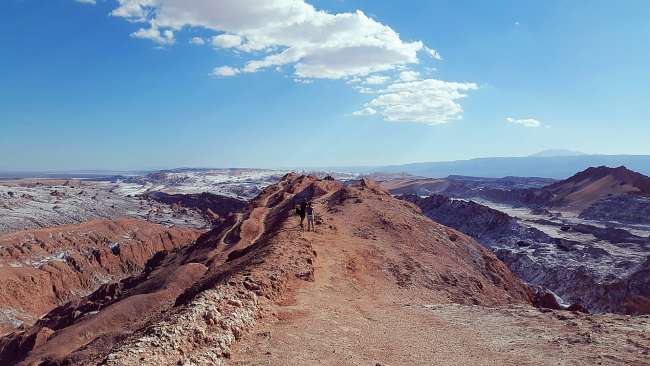
Marandu jeguata rehegua Chile
